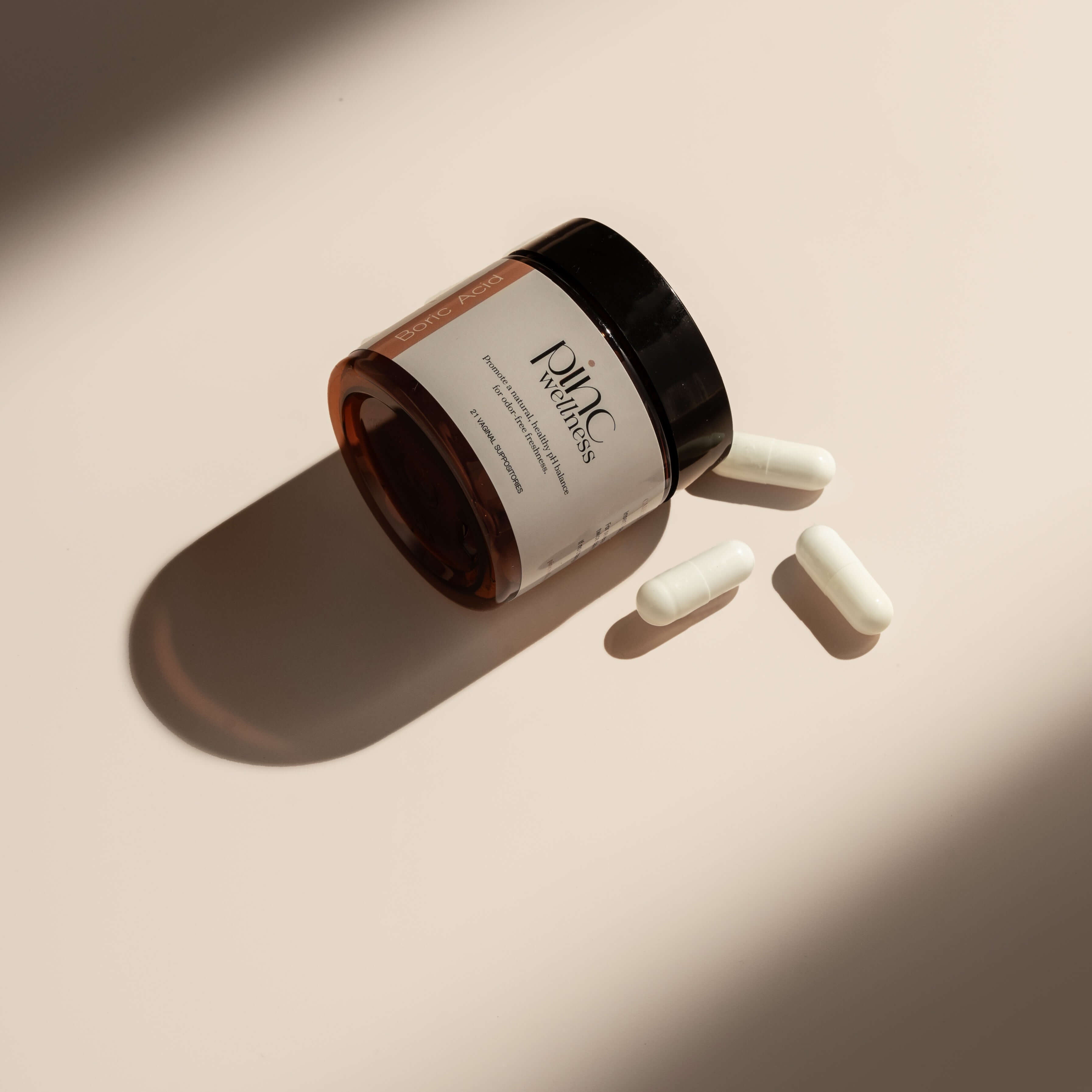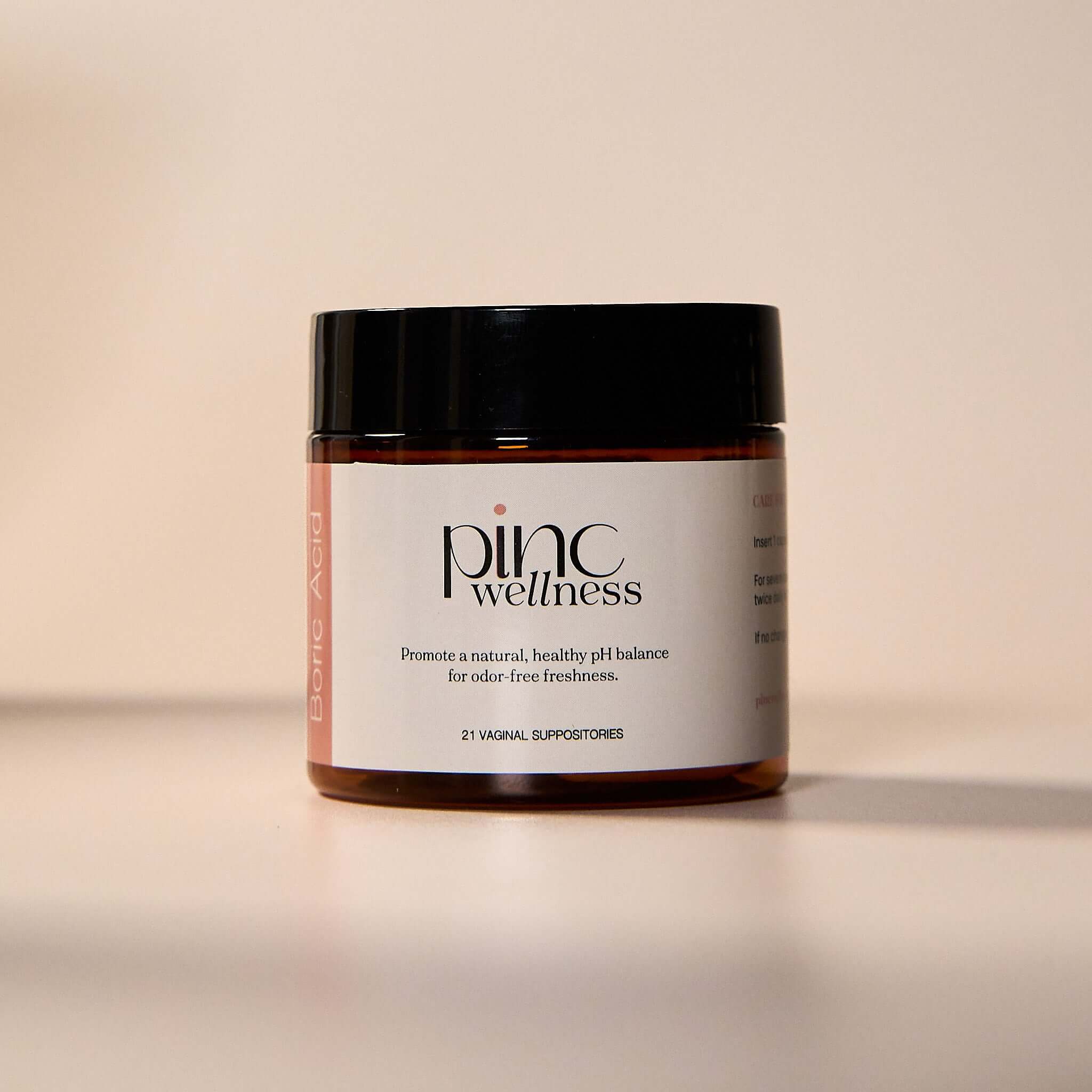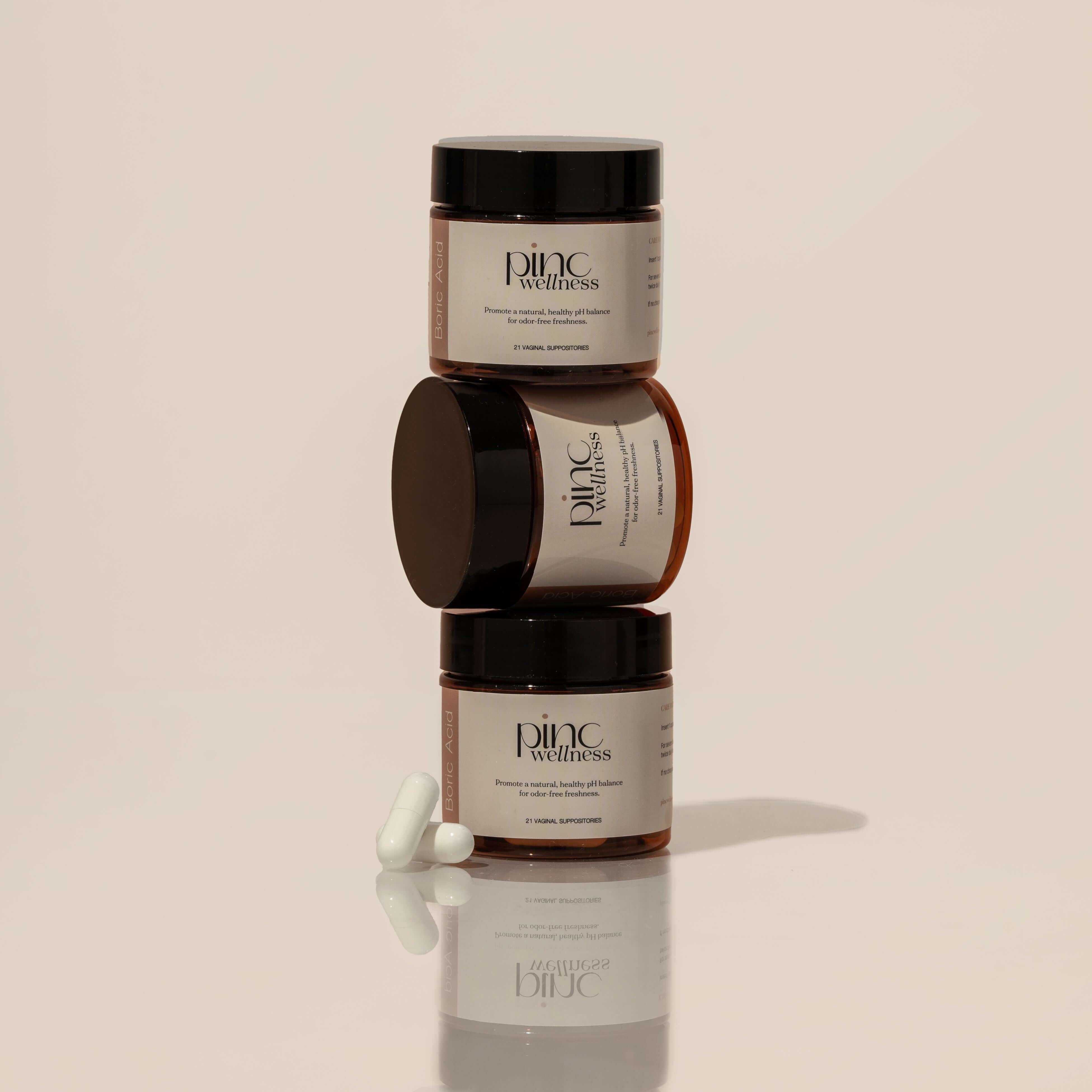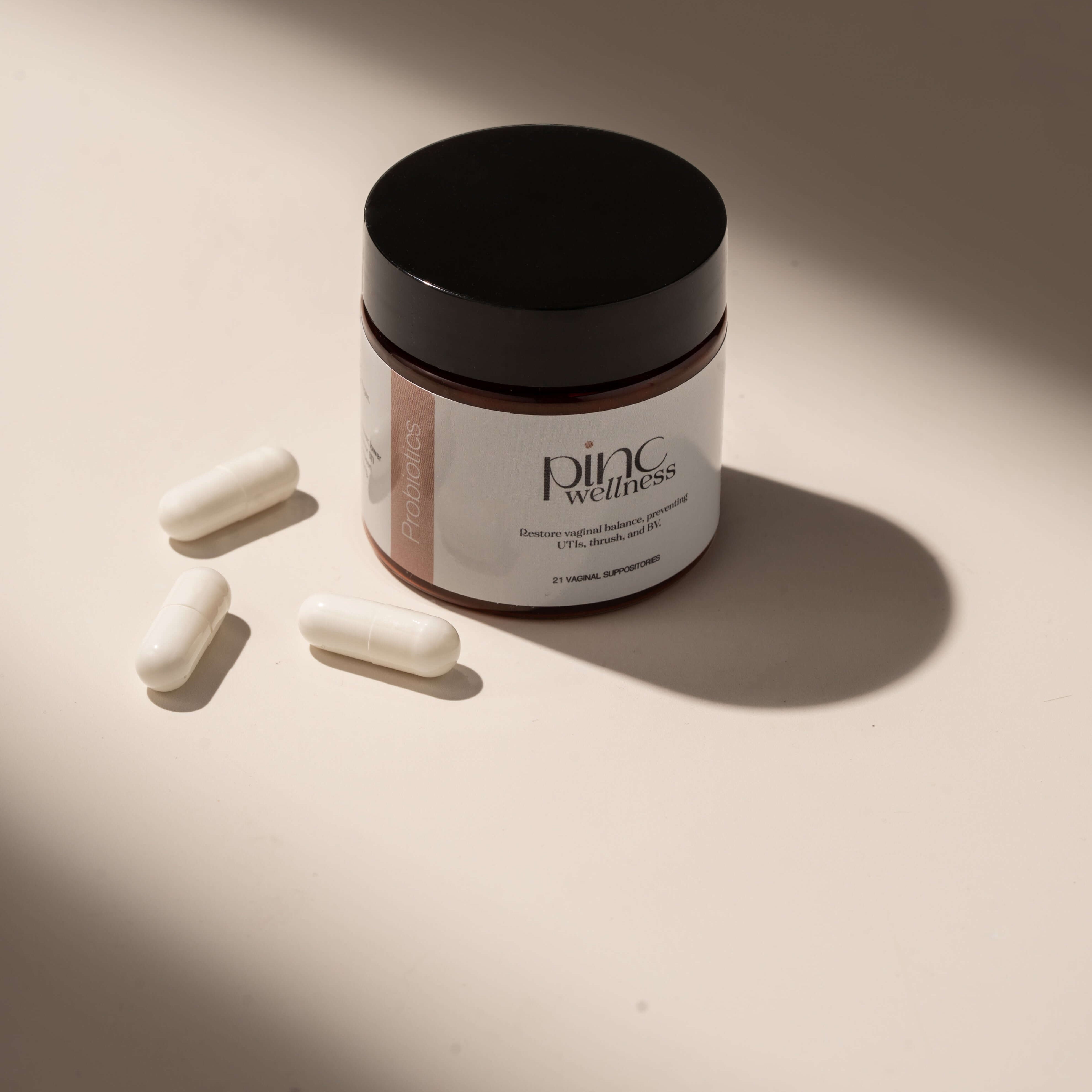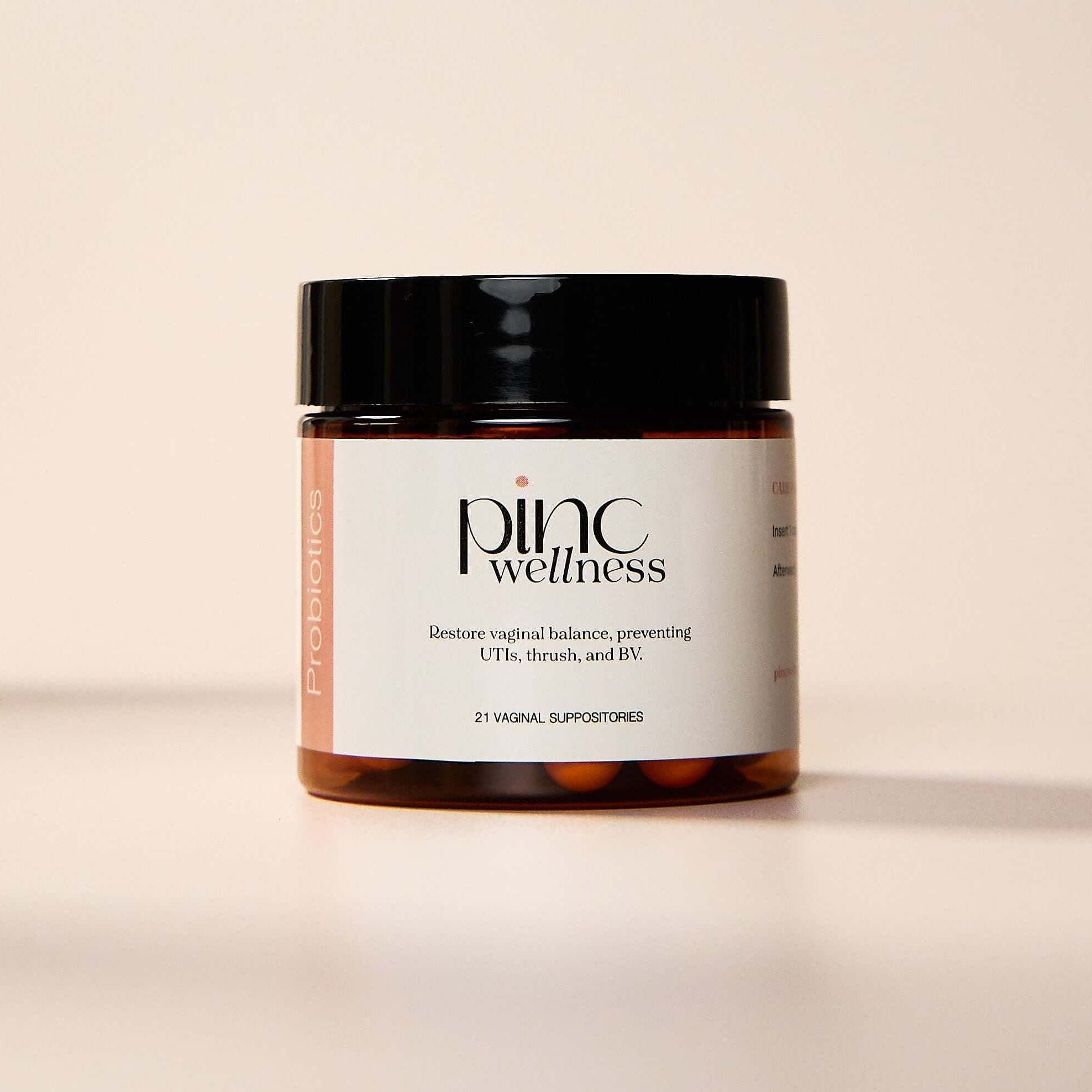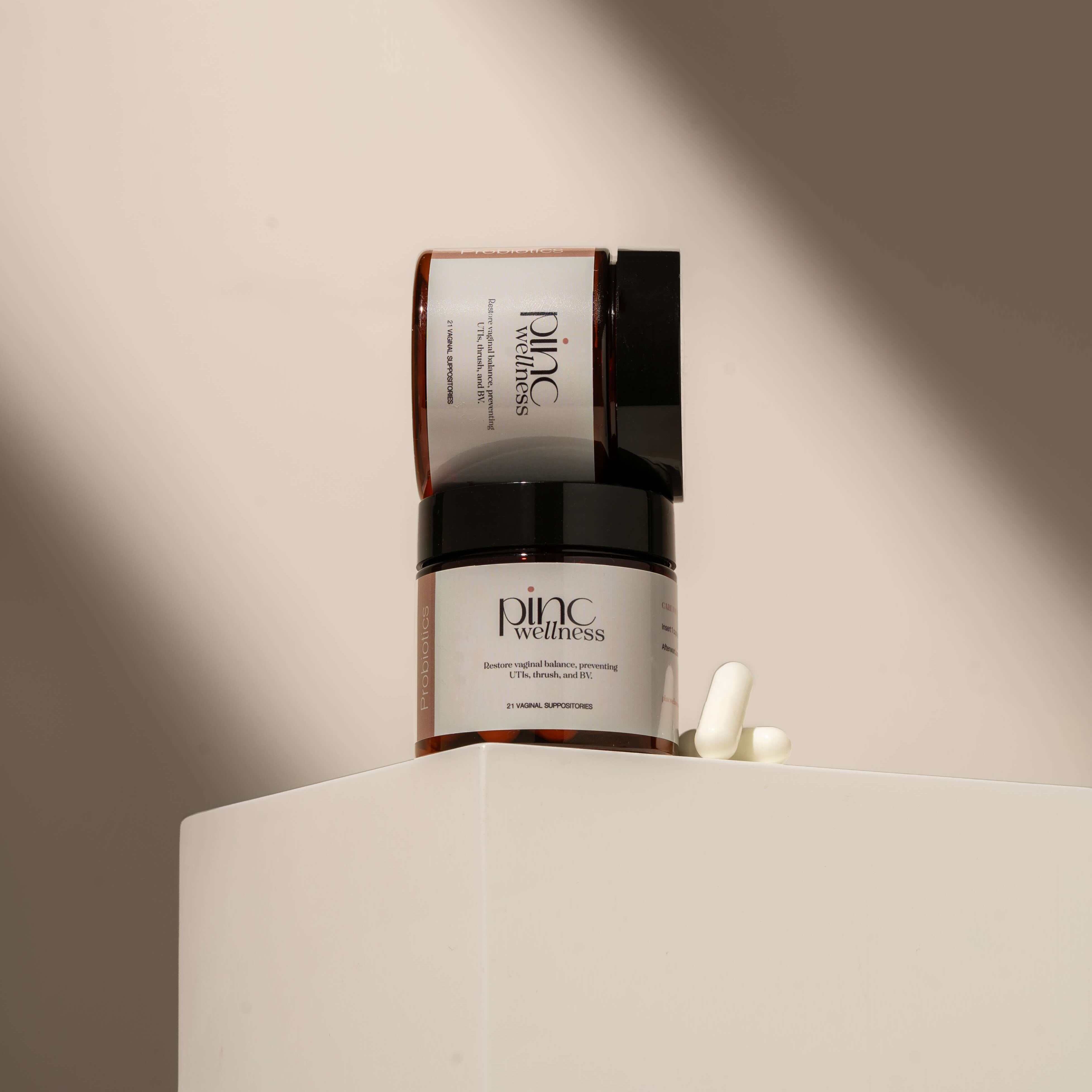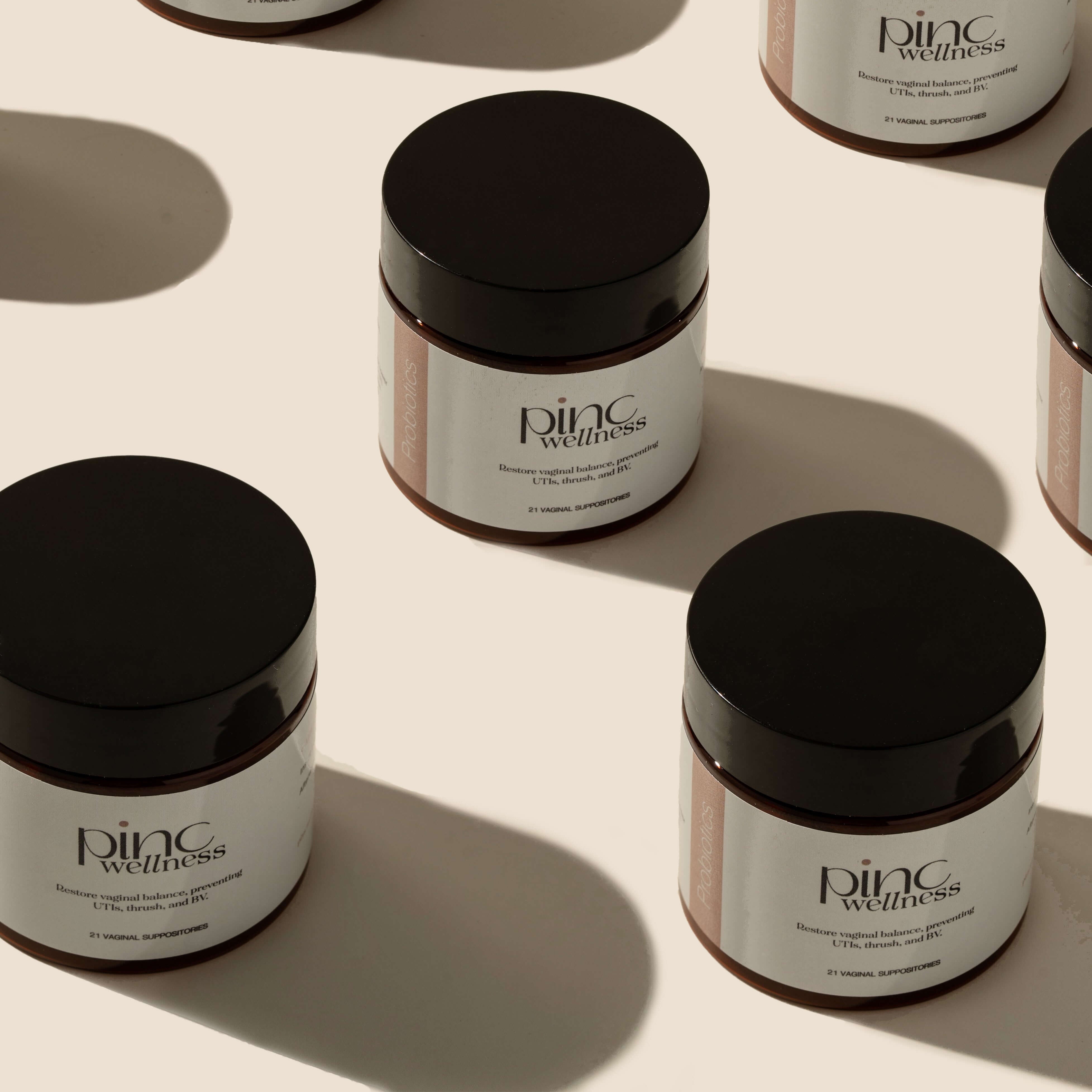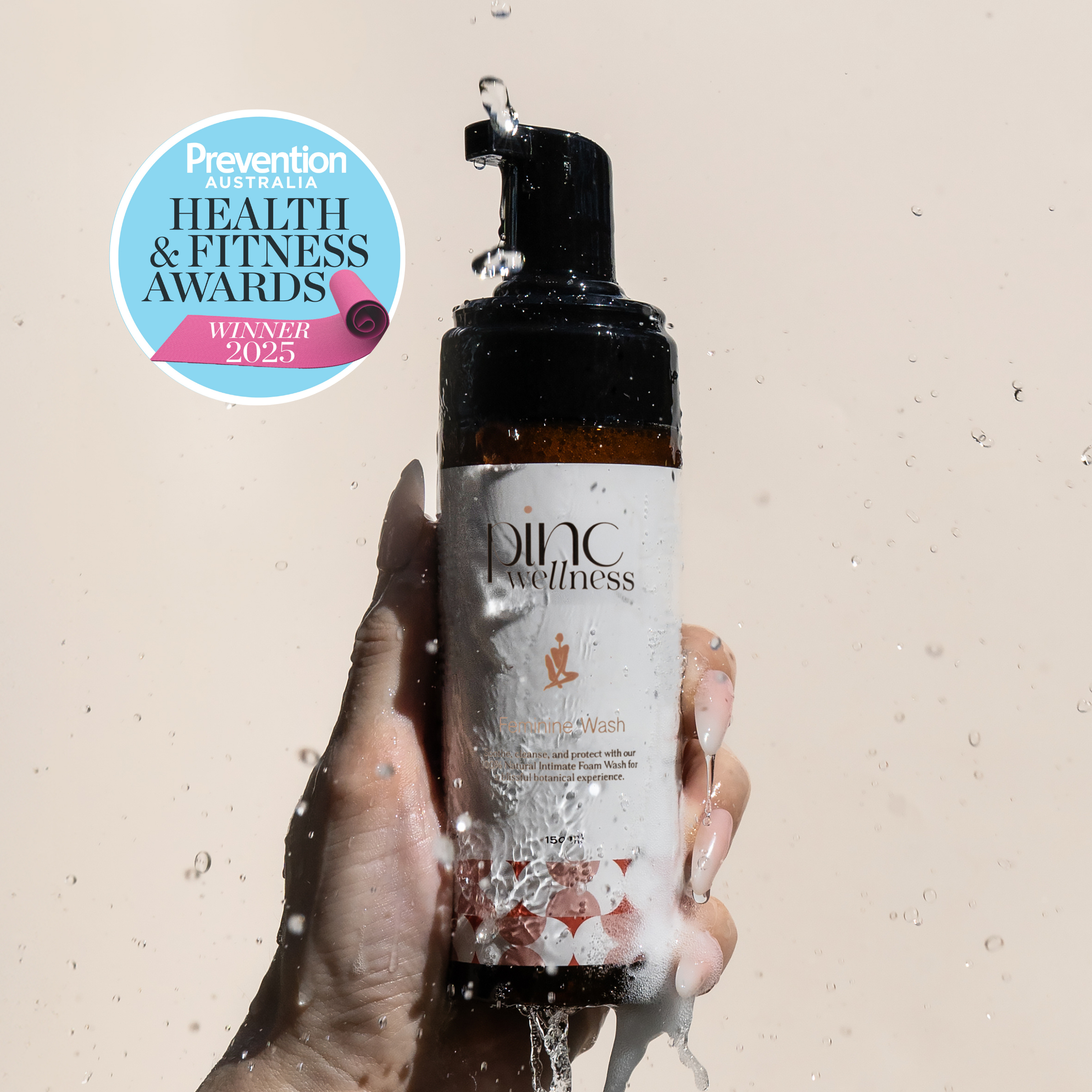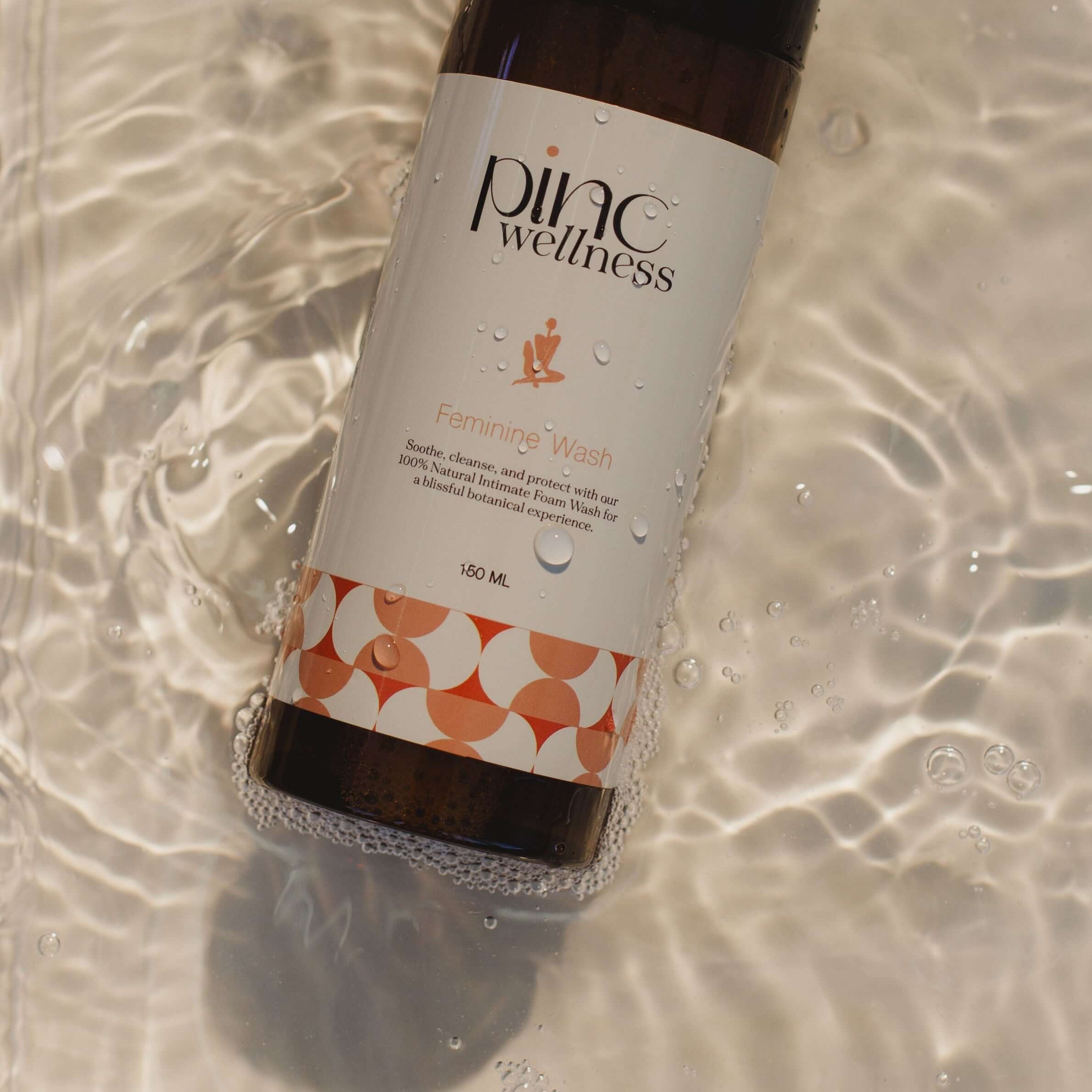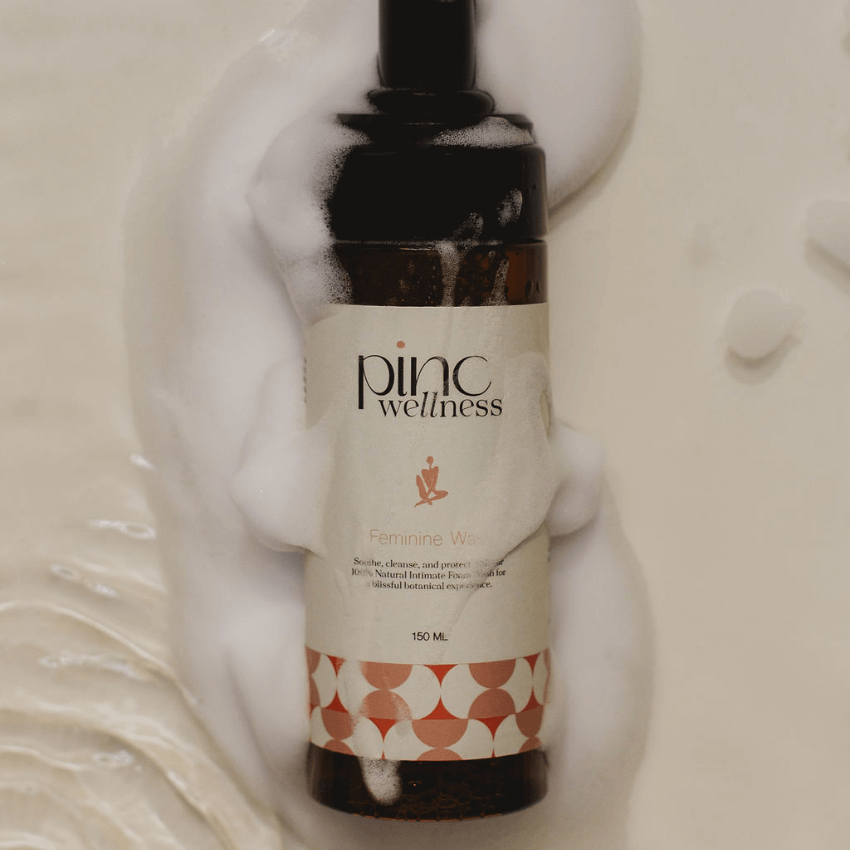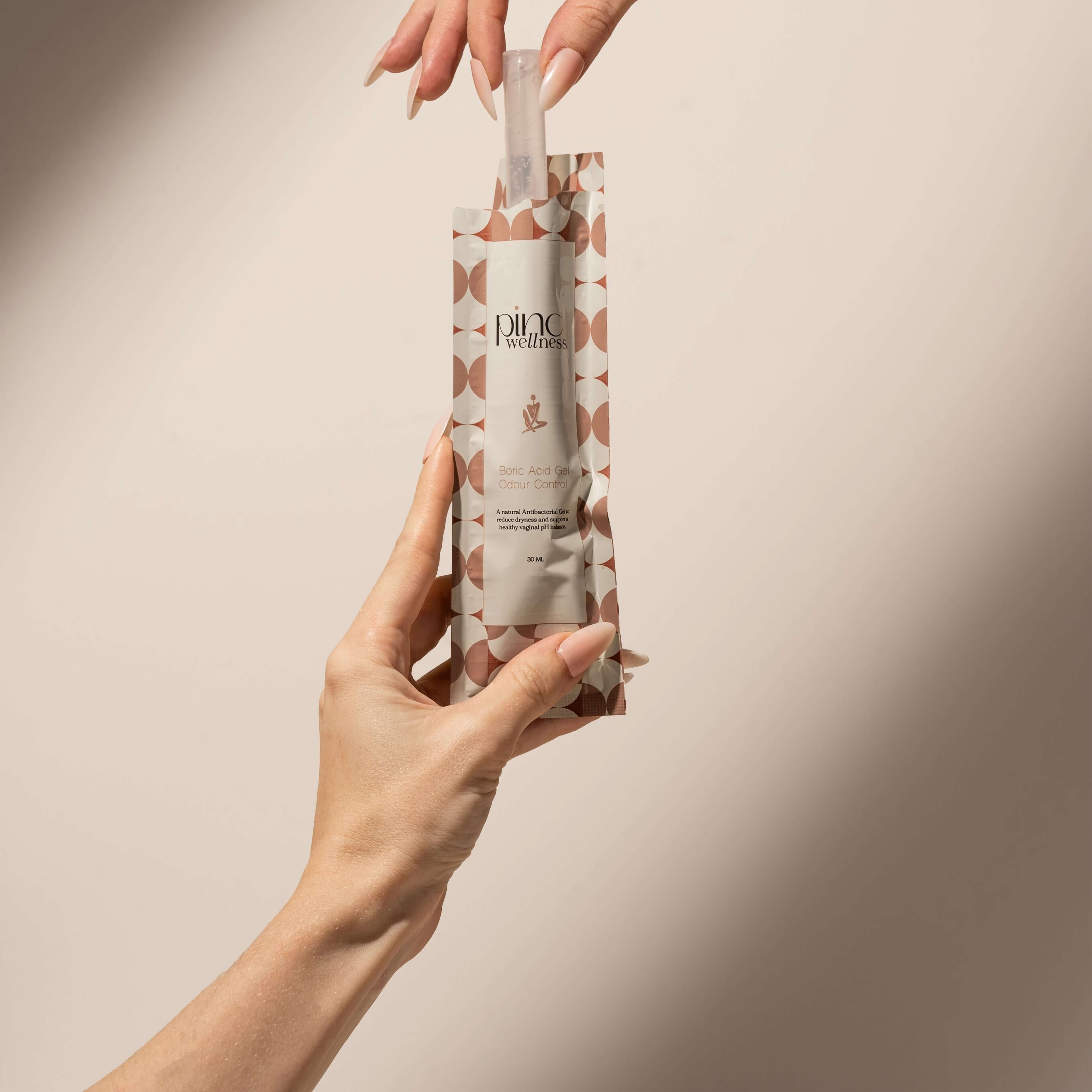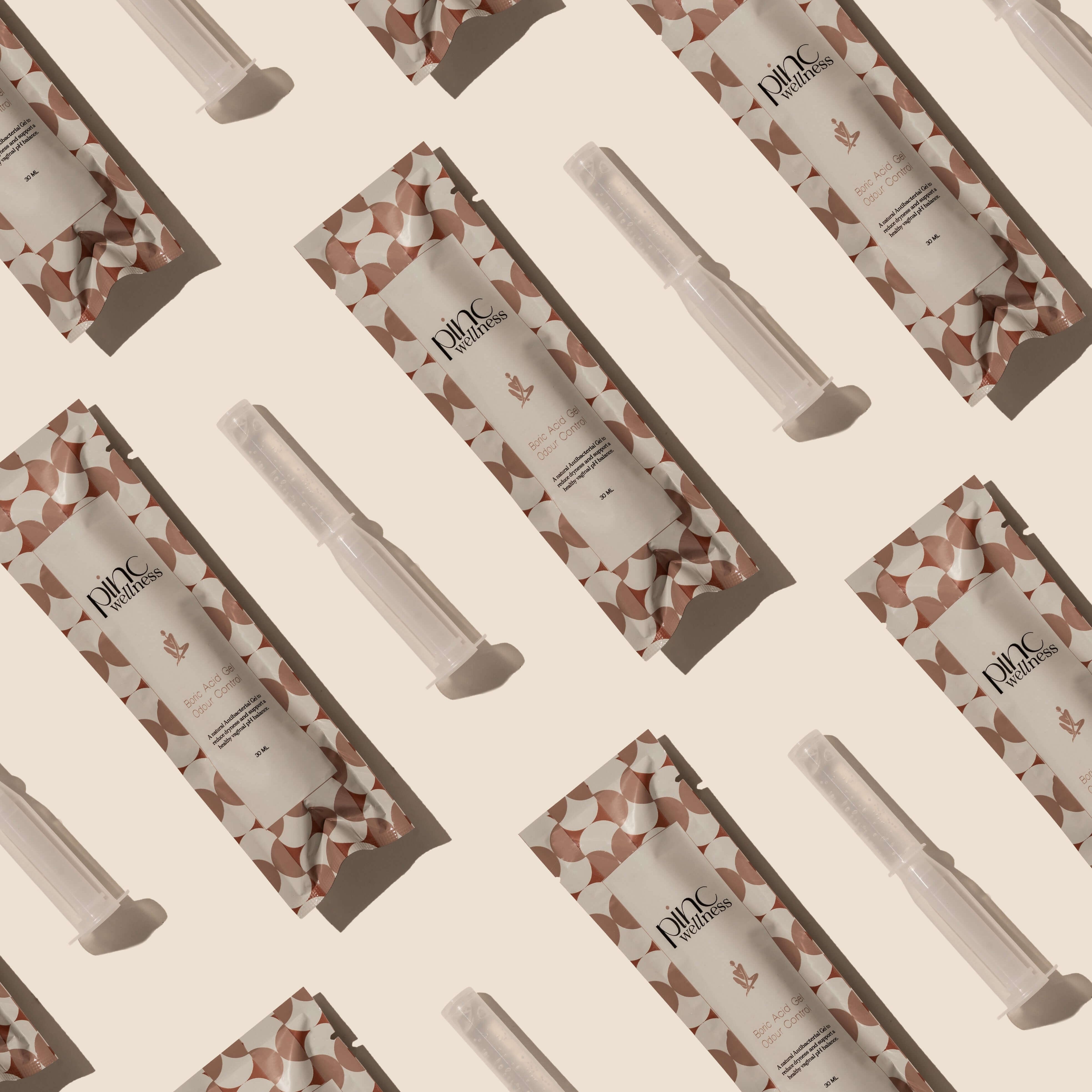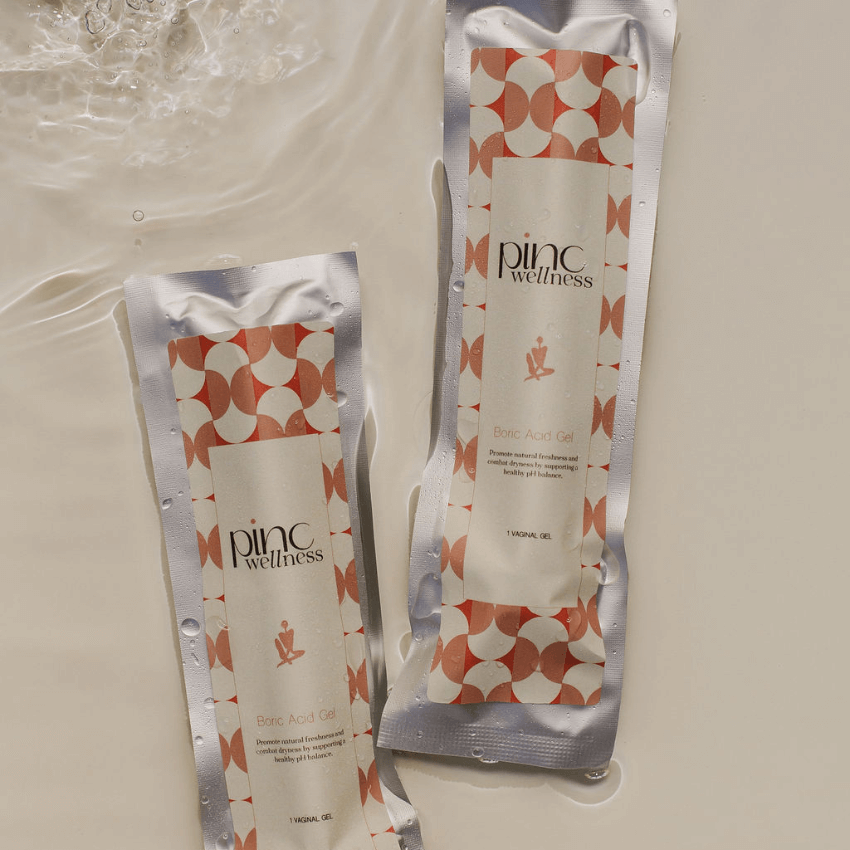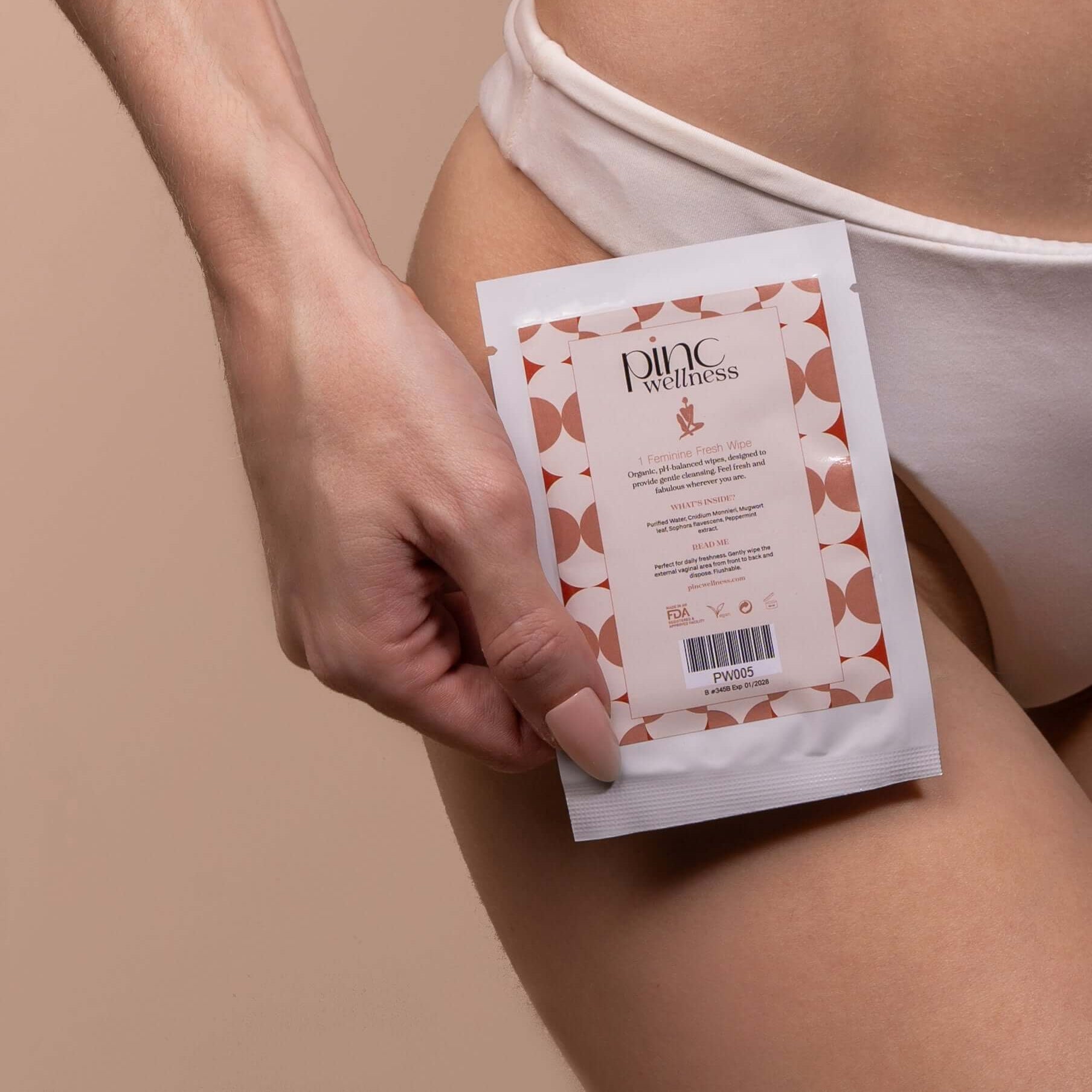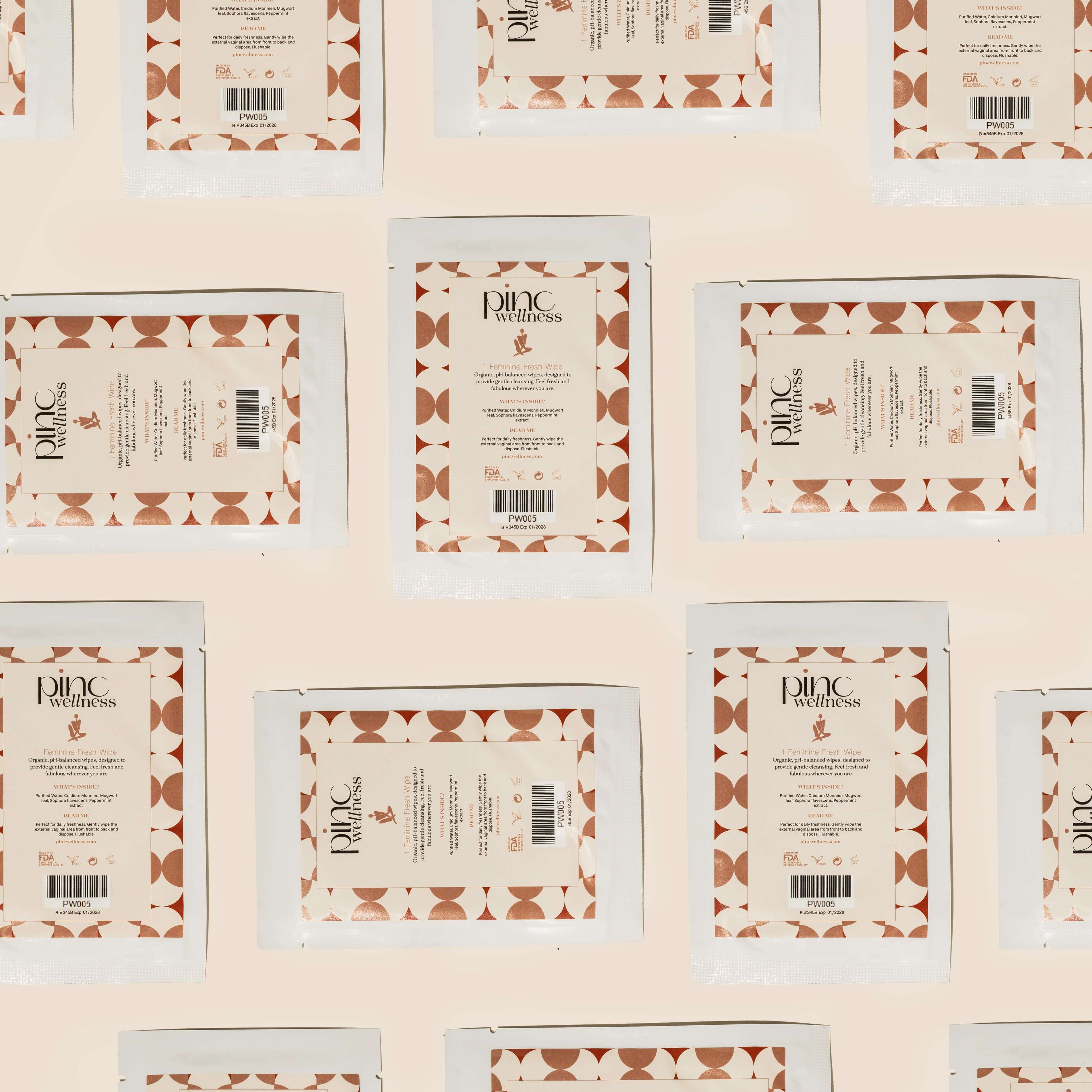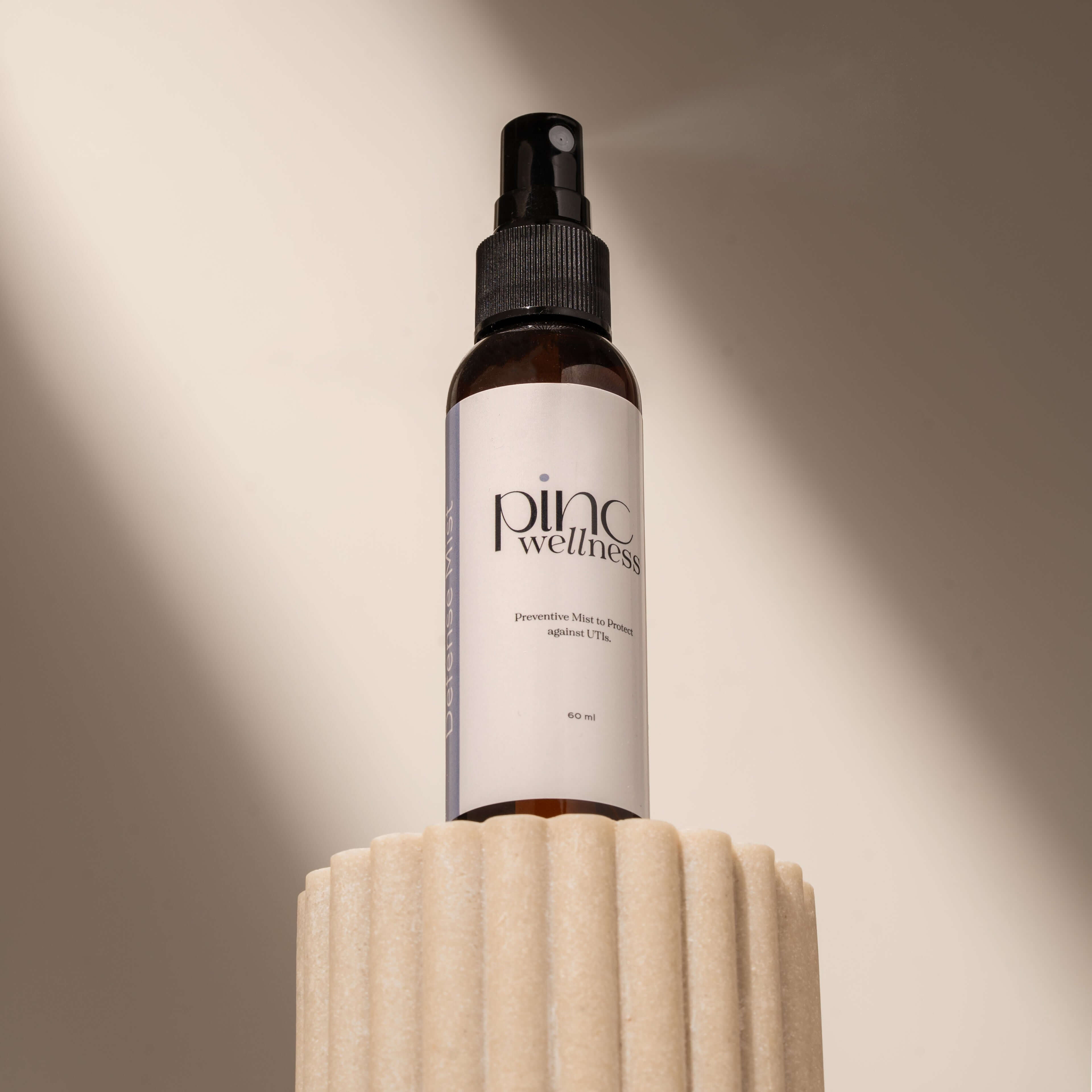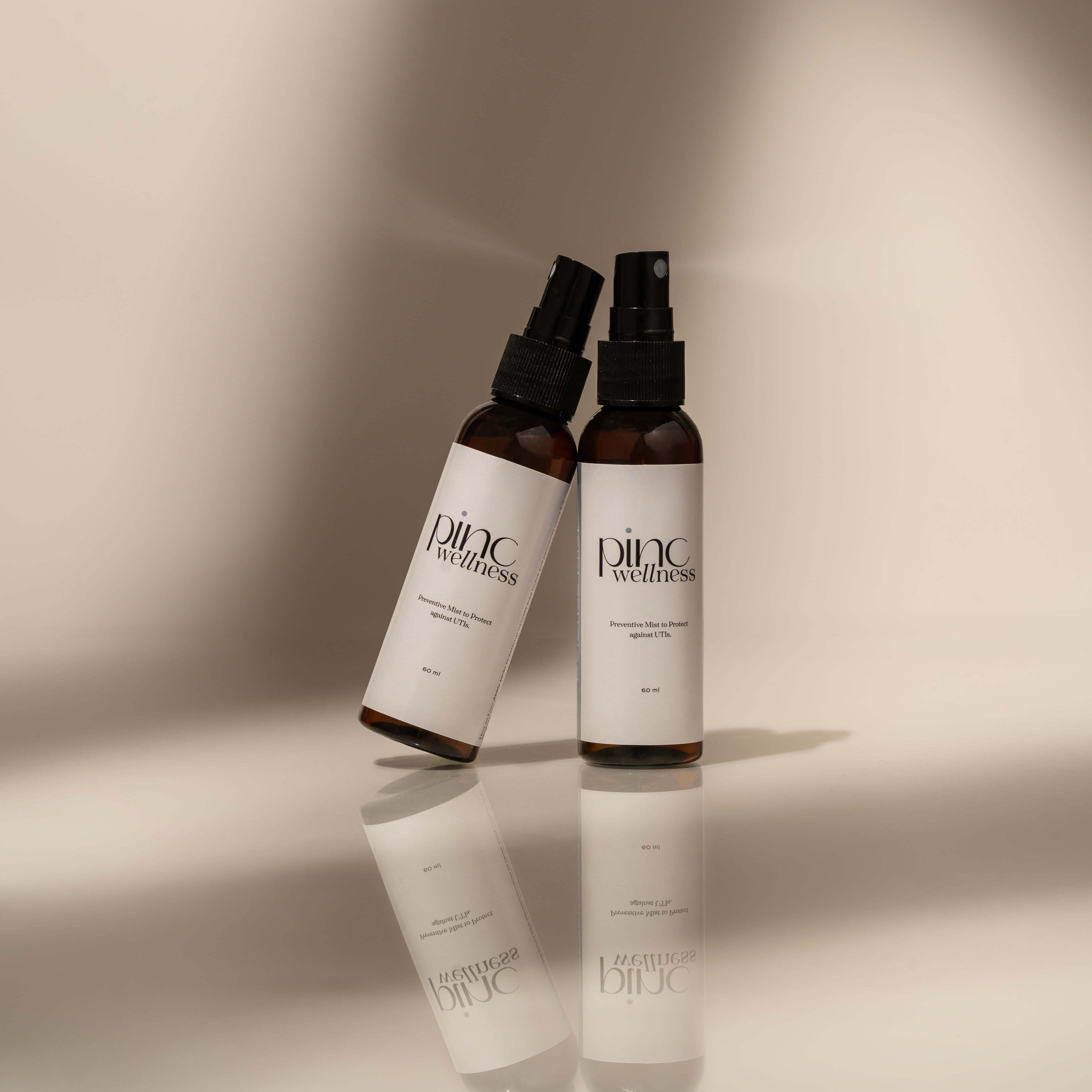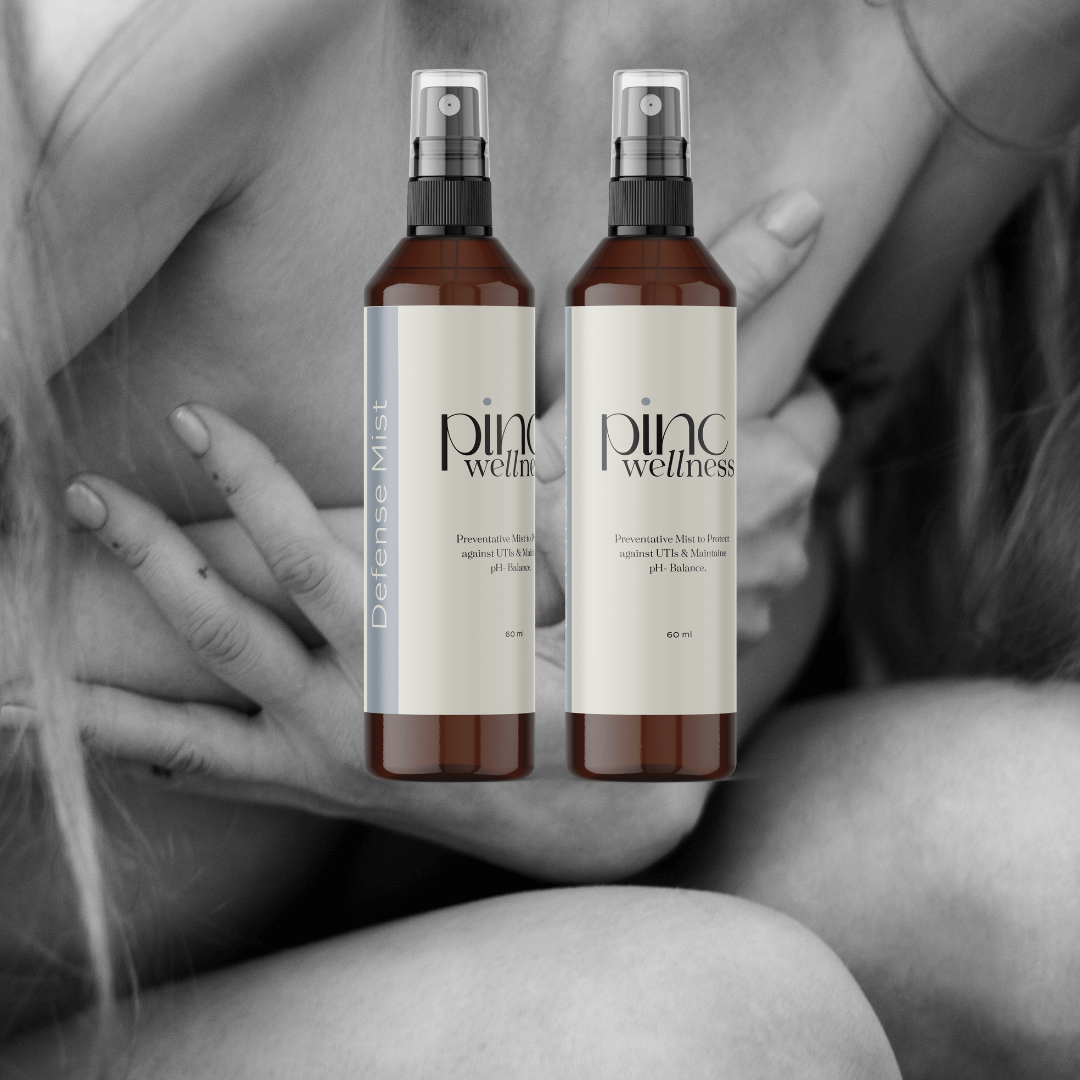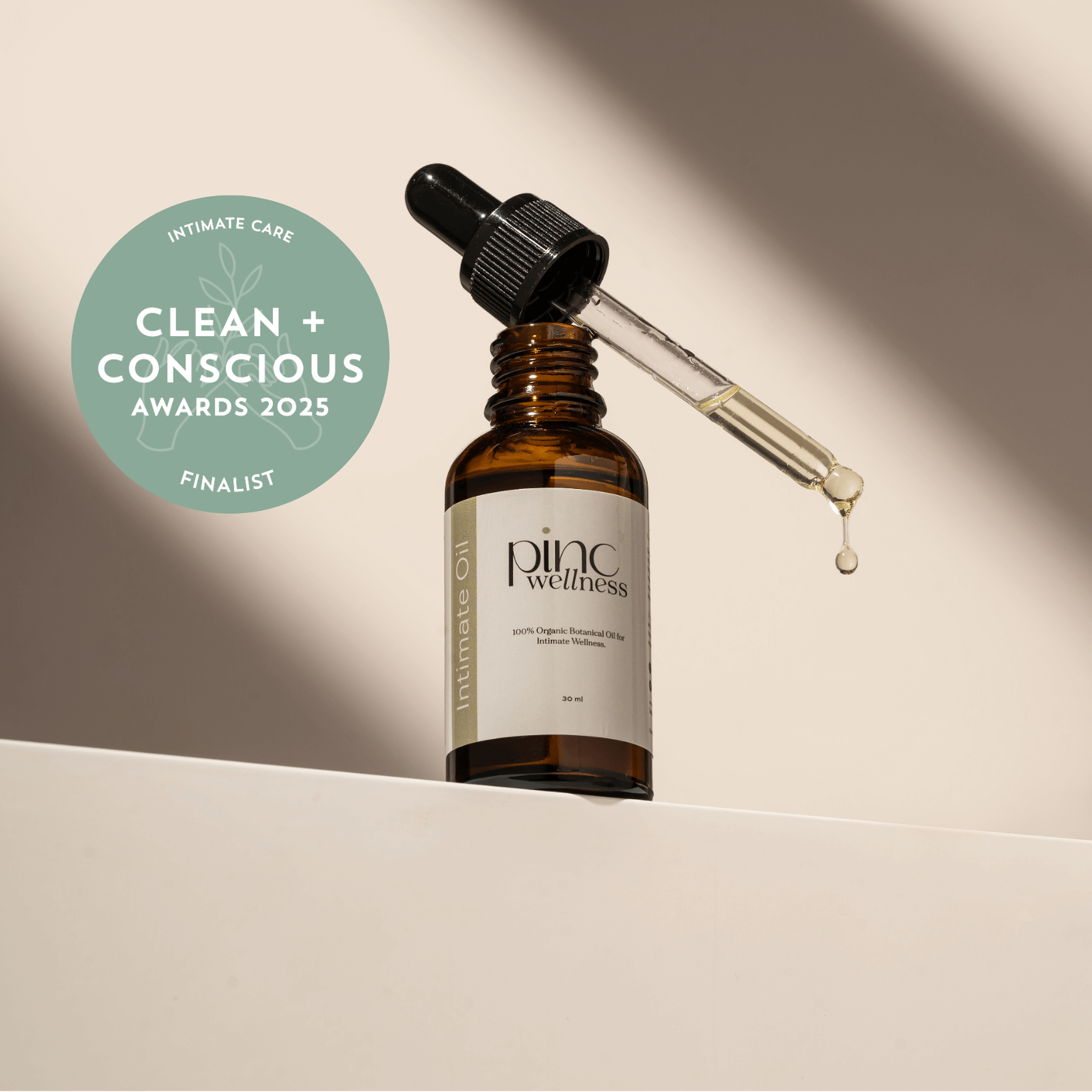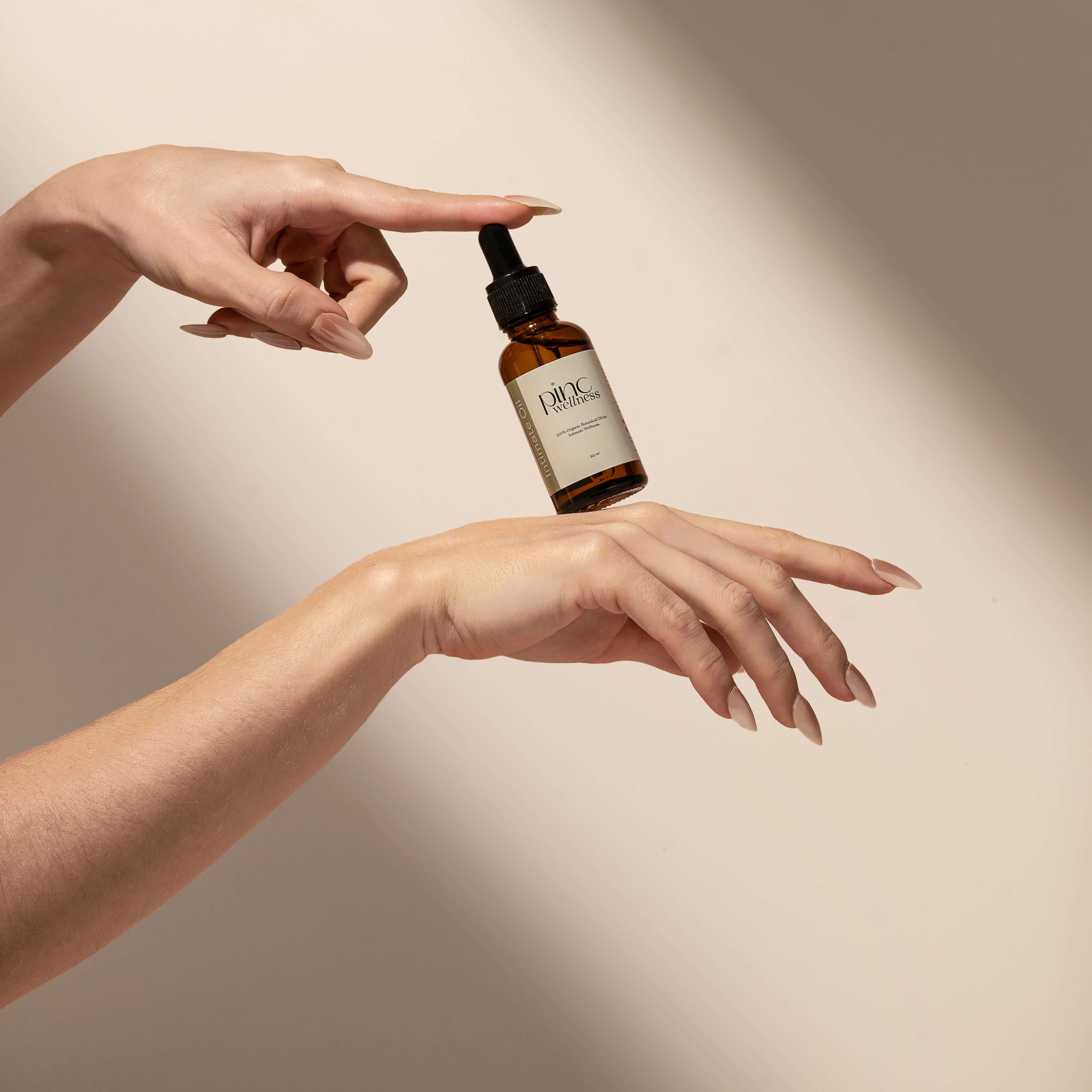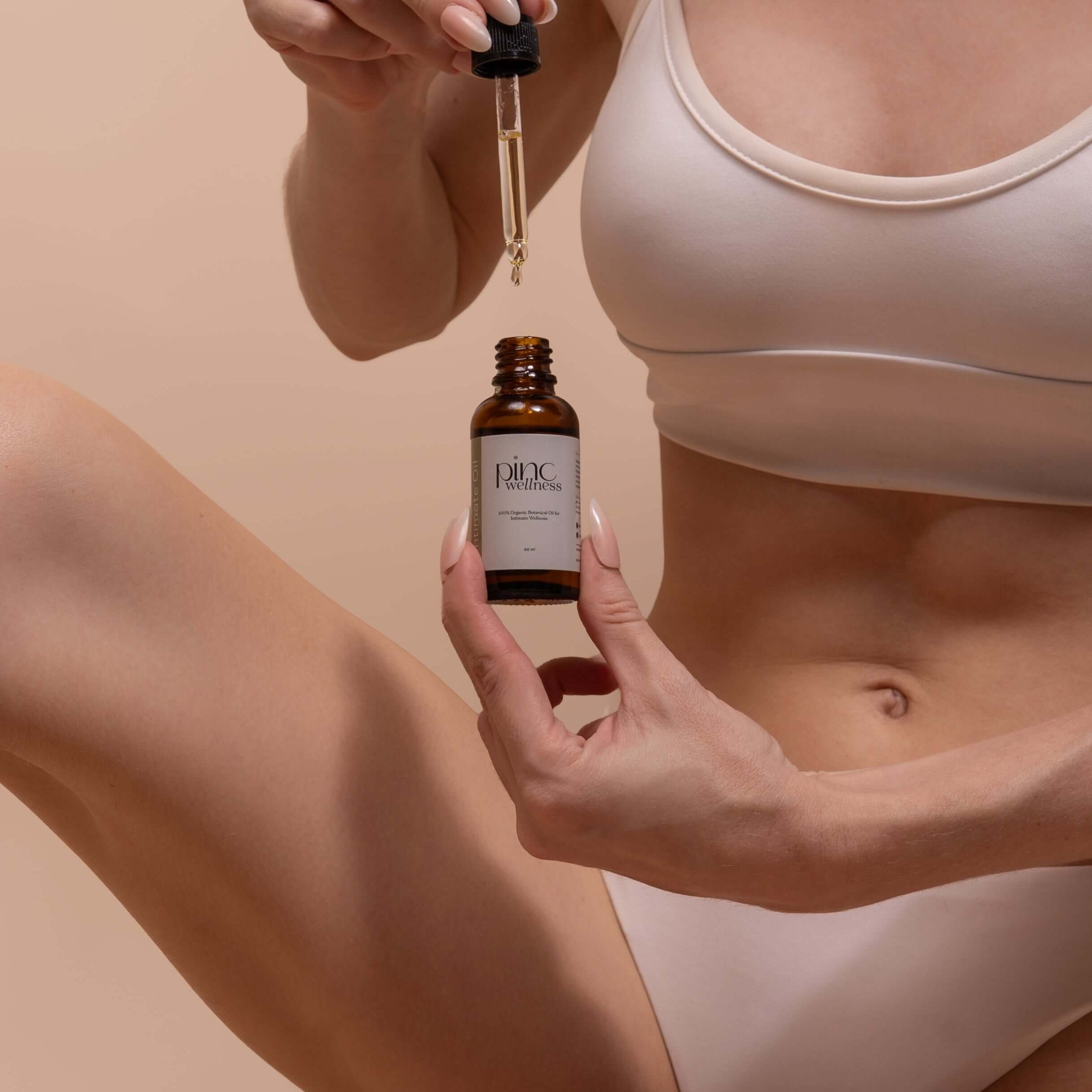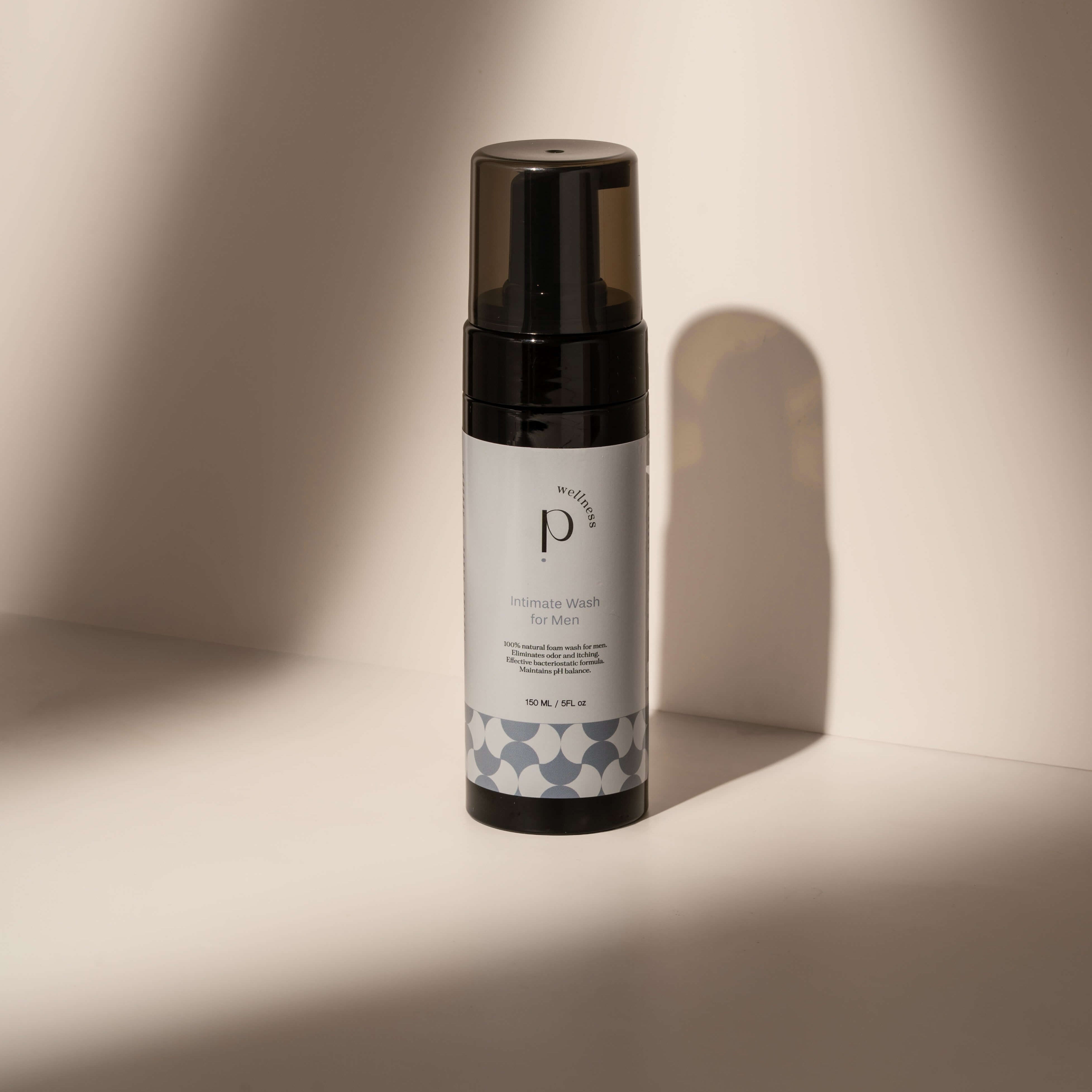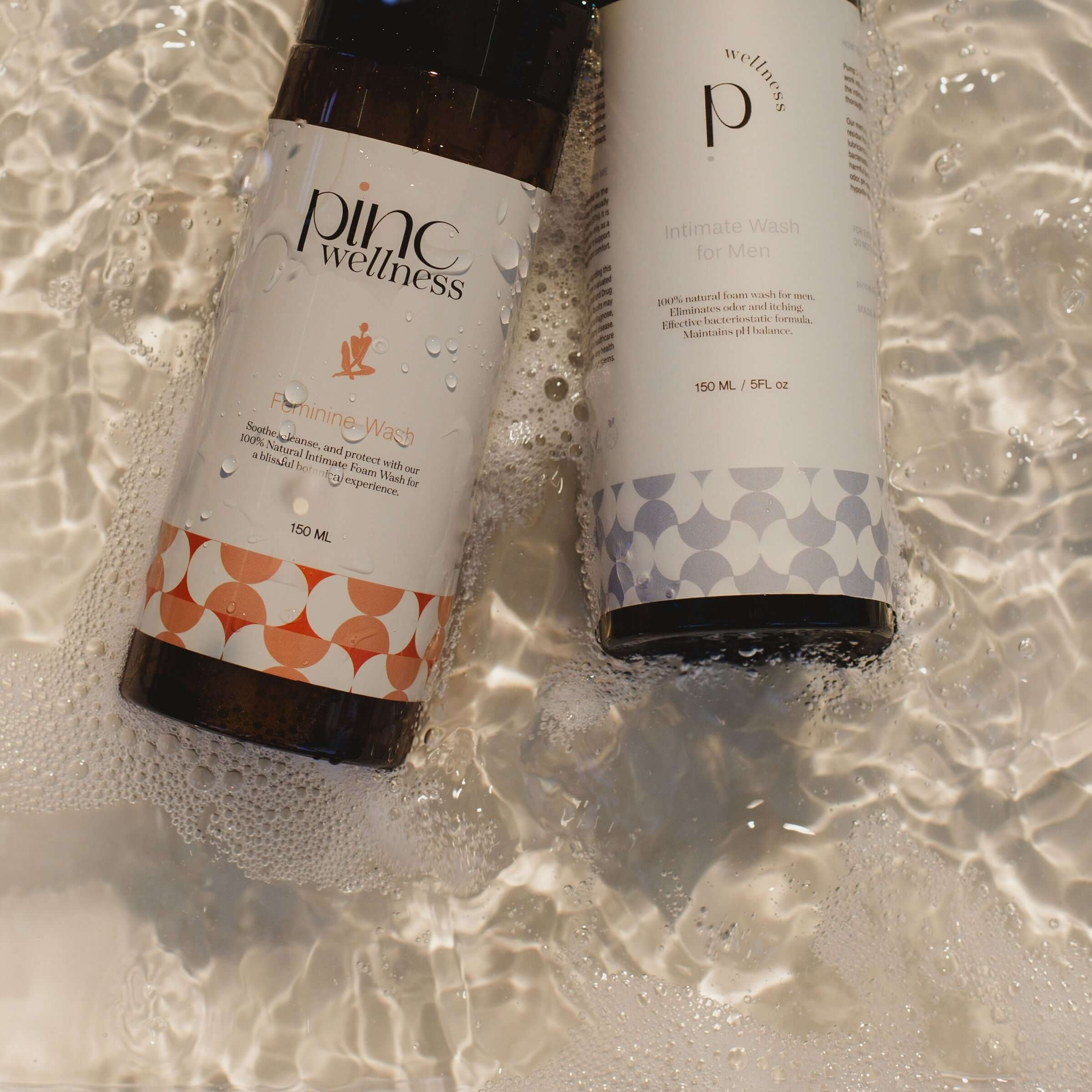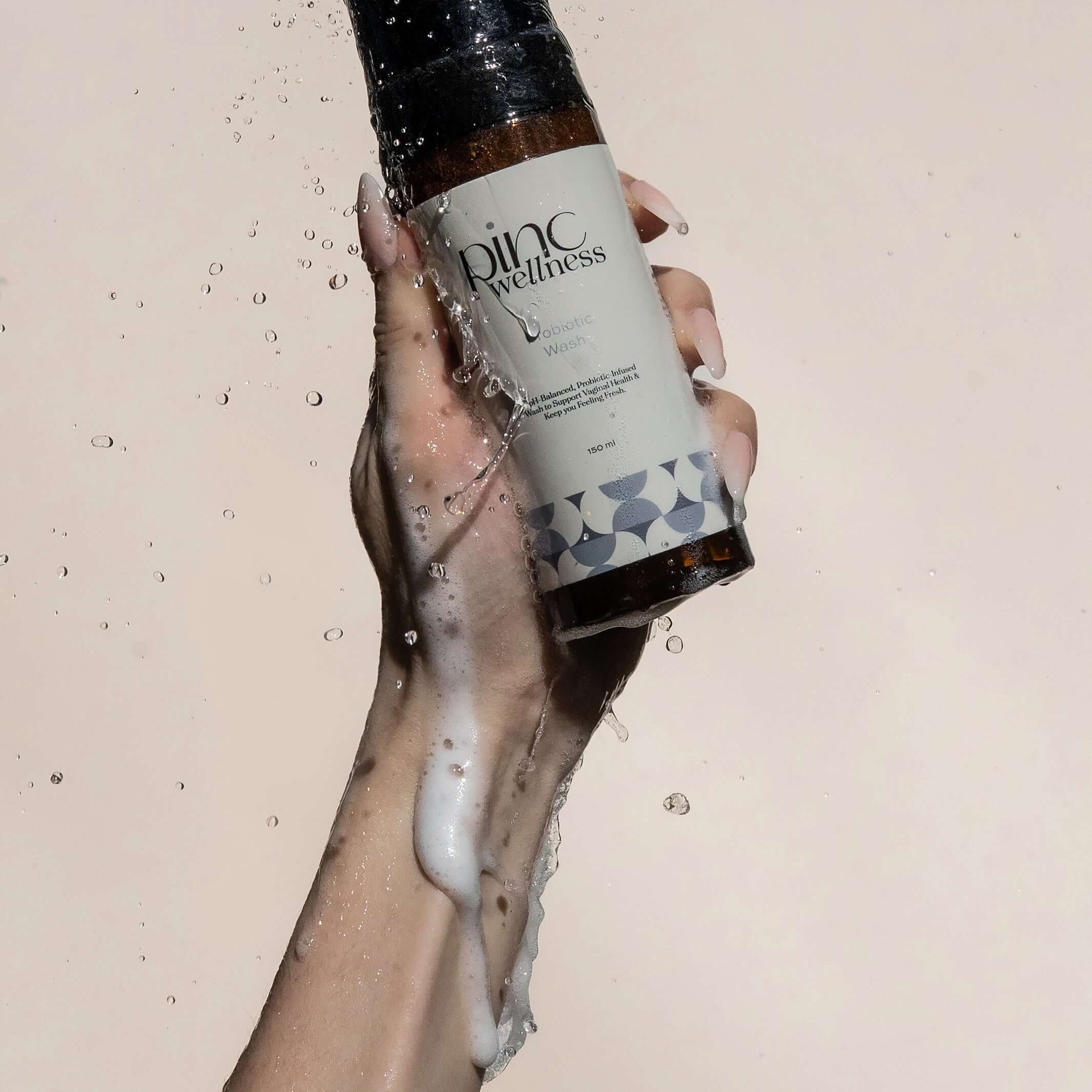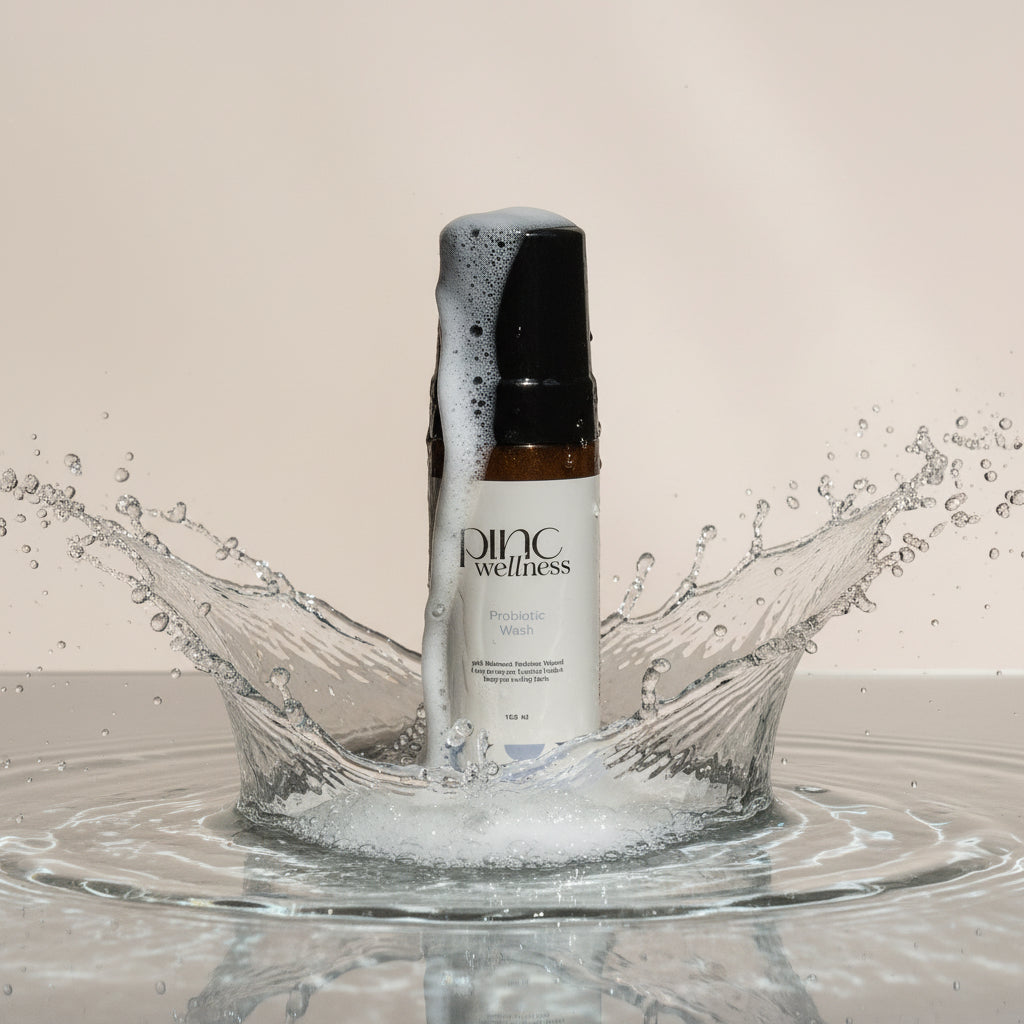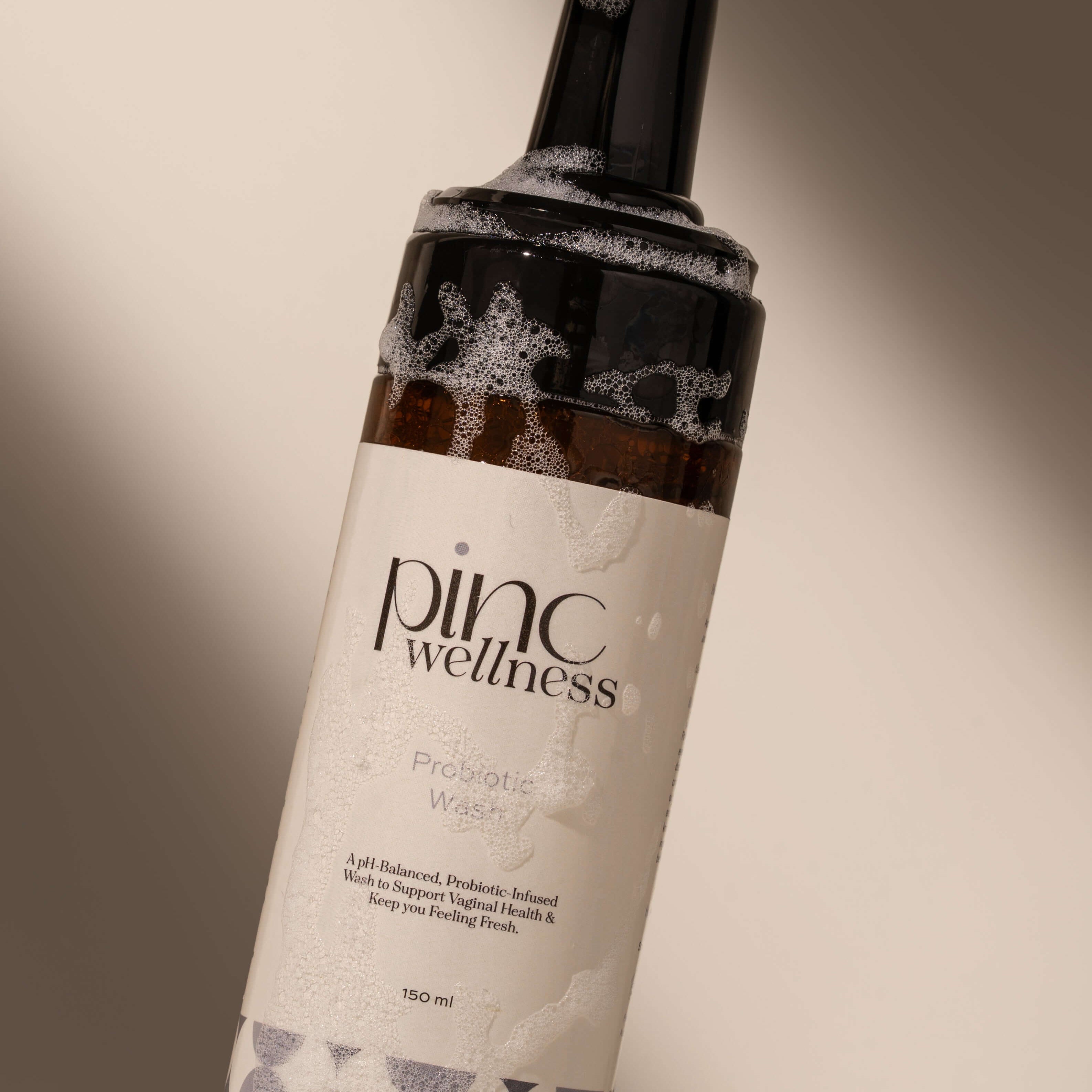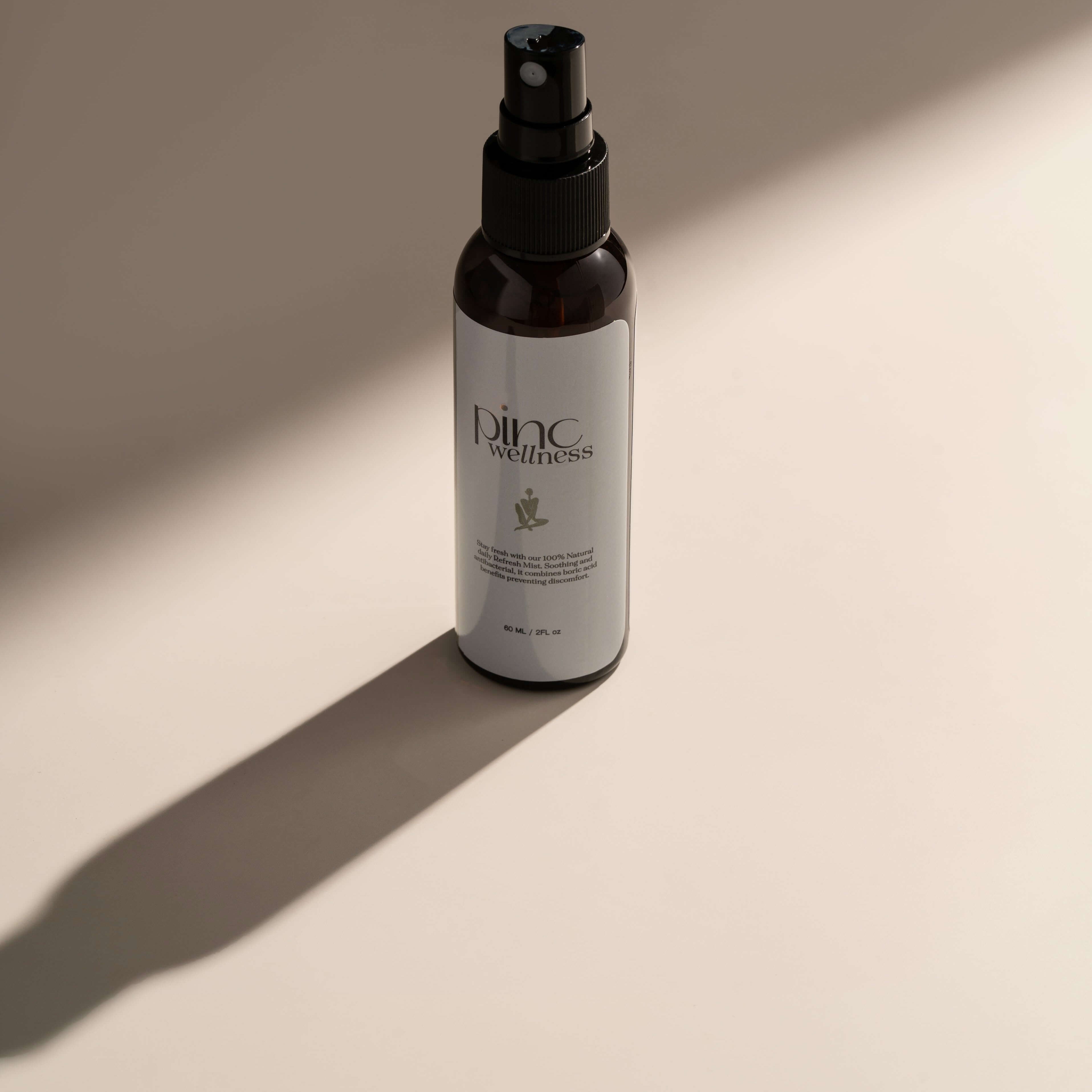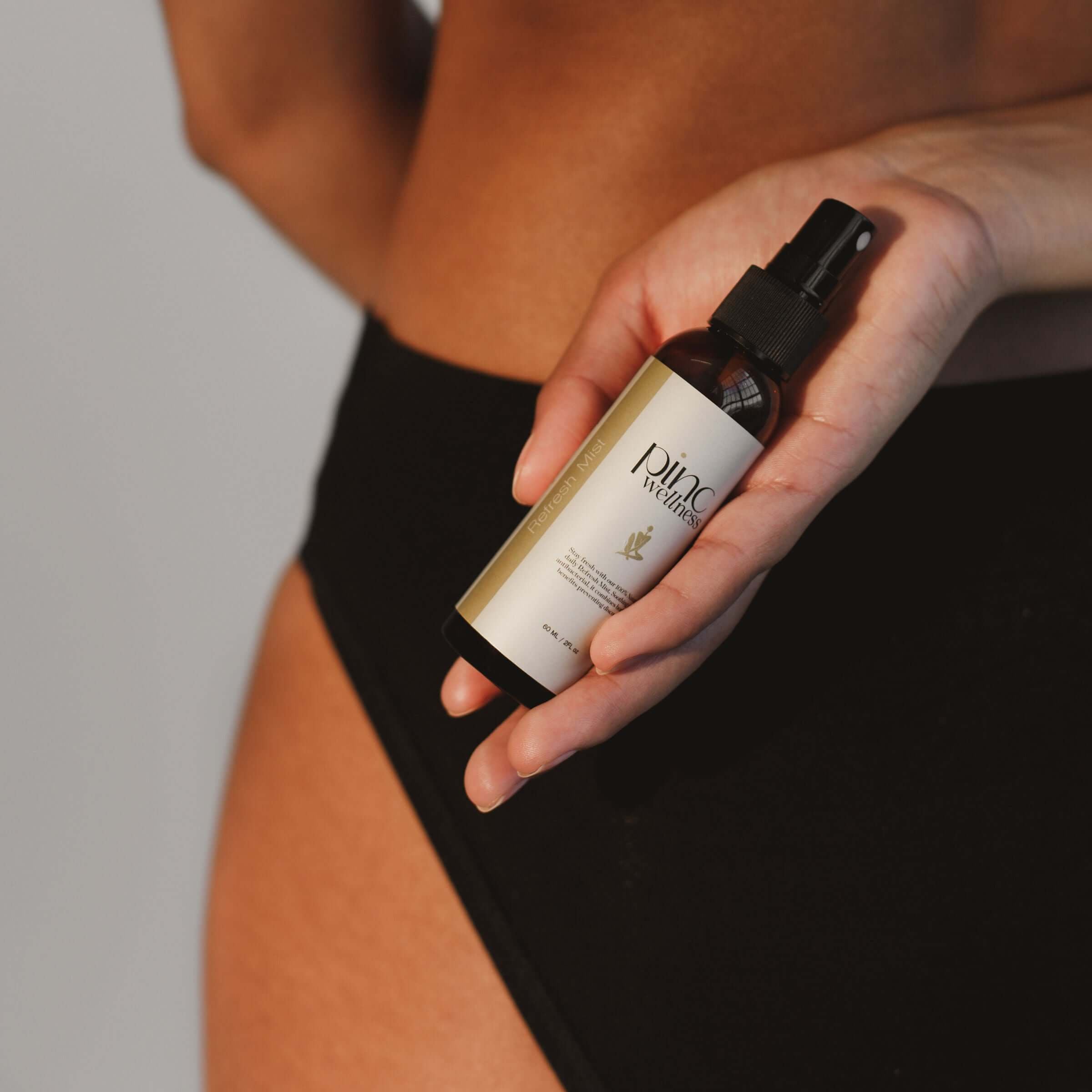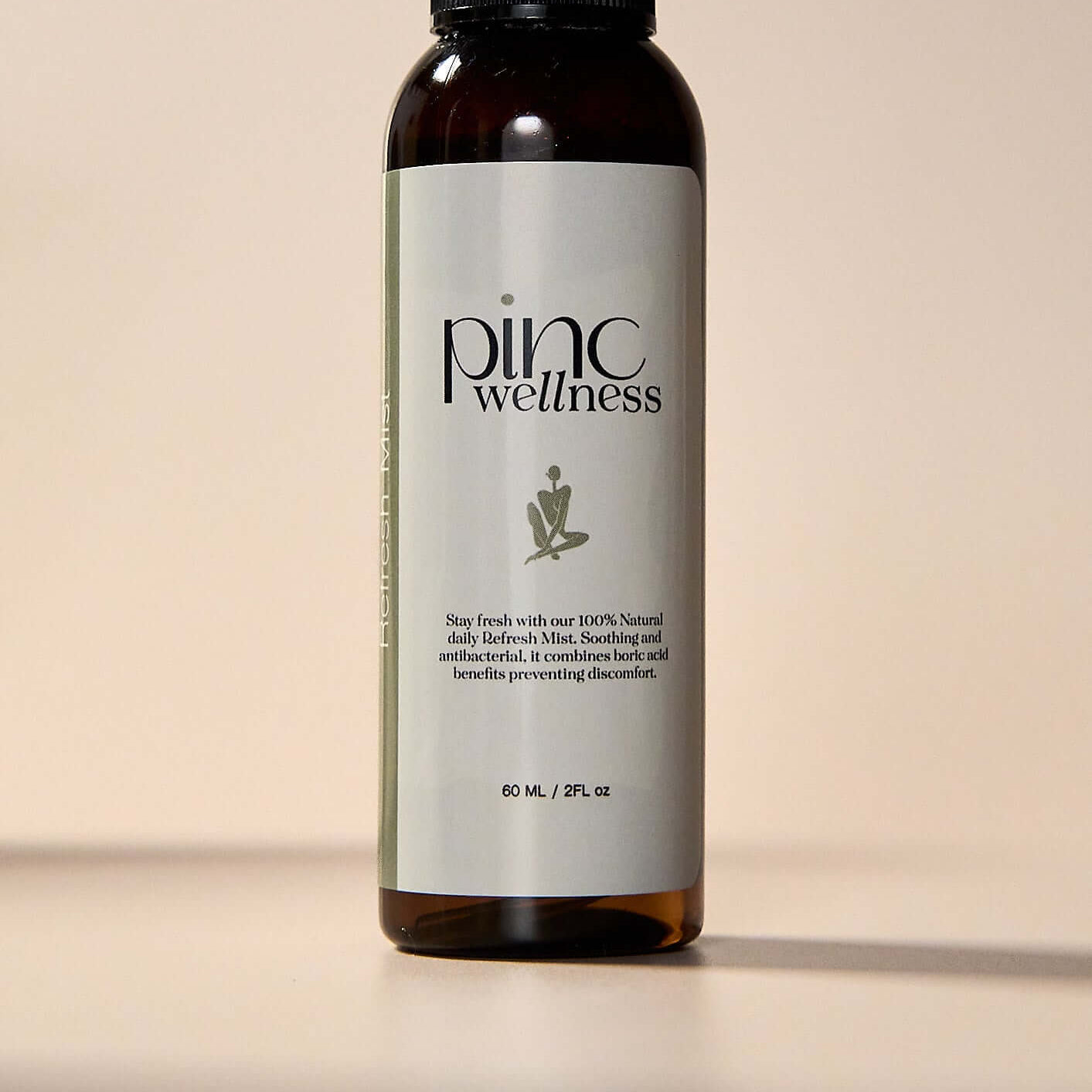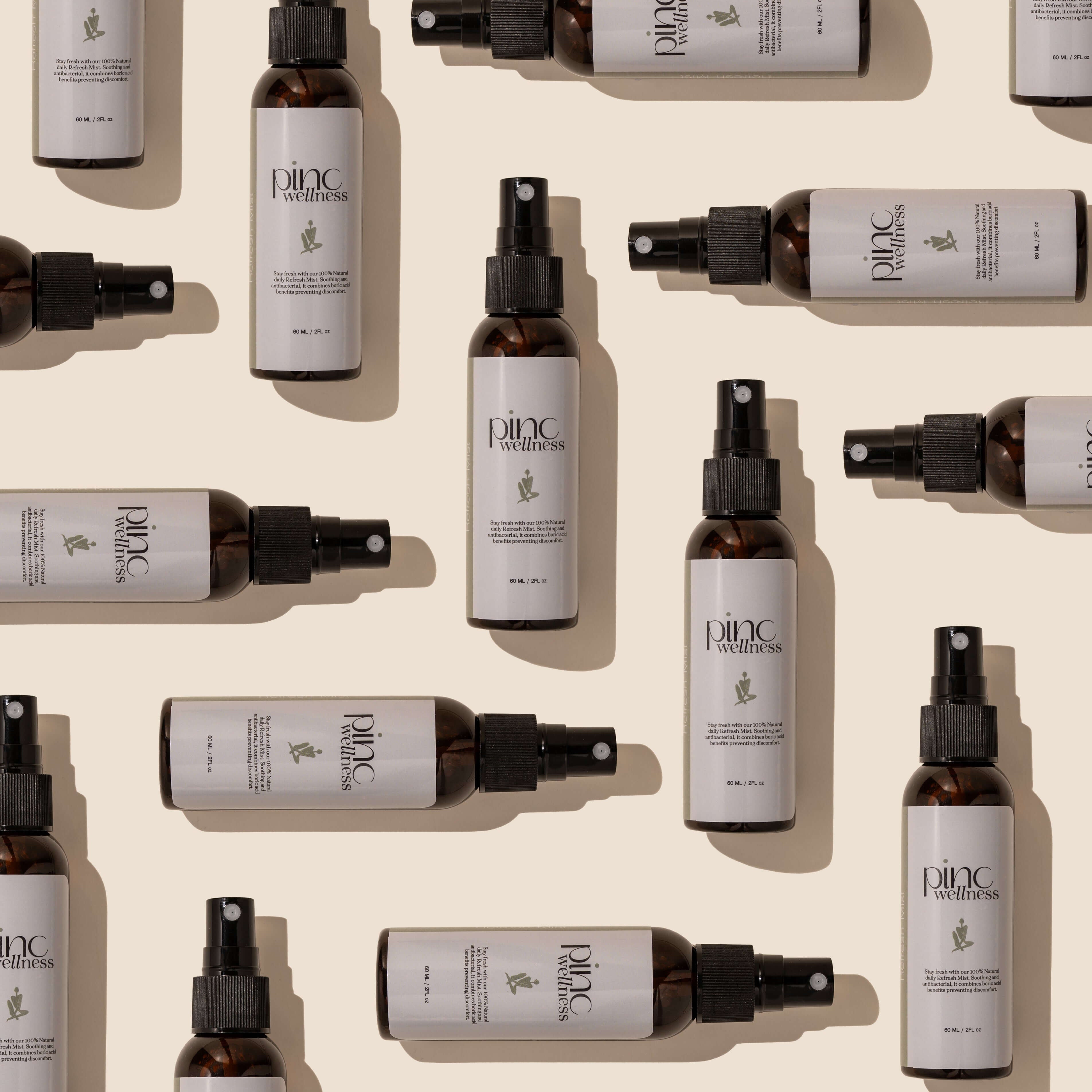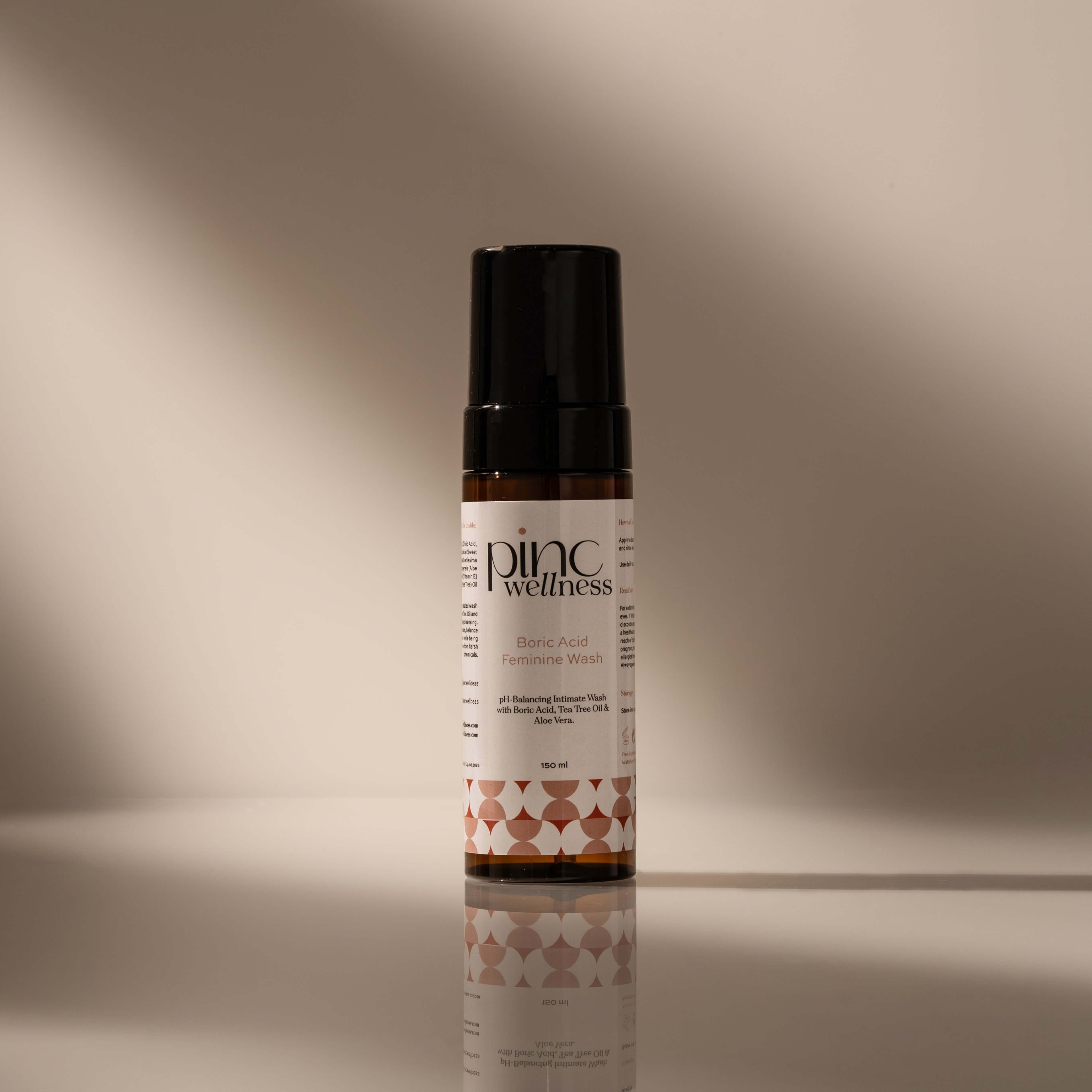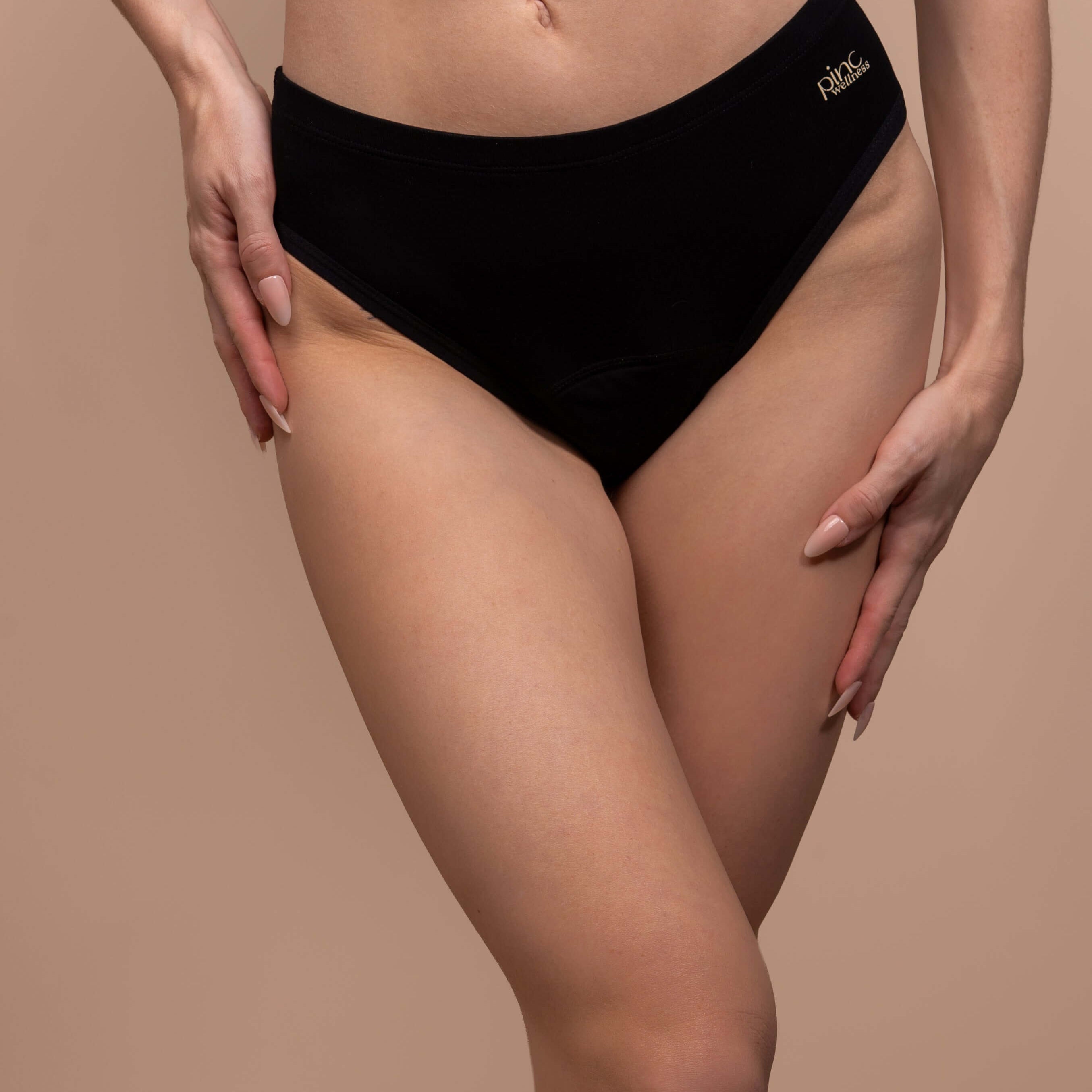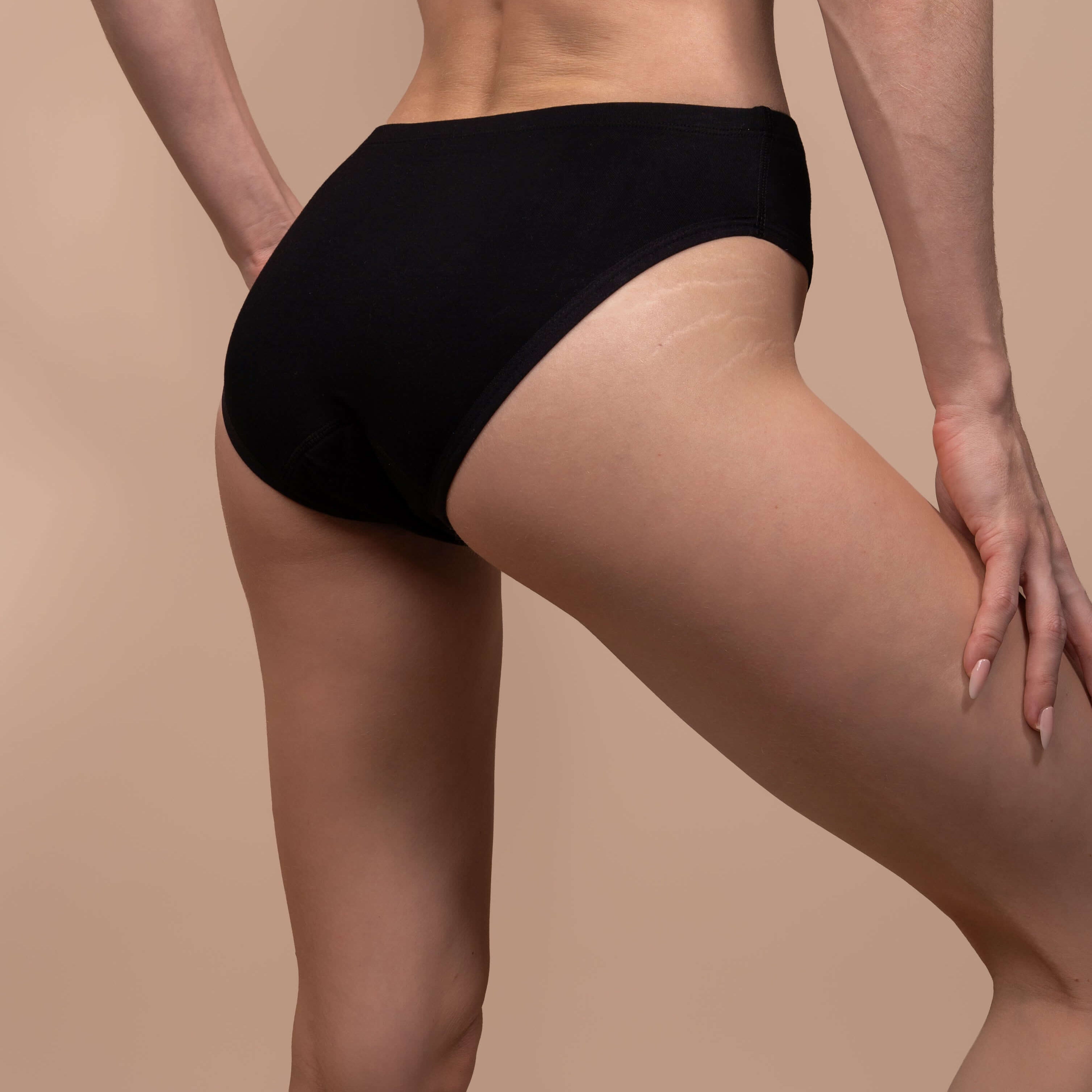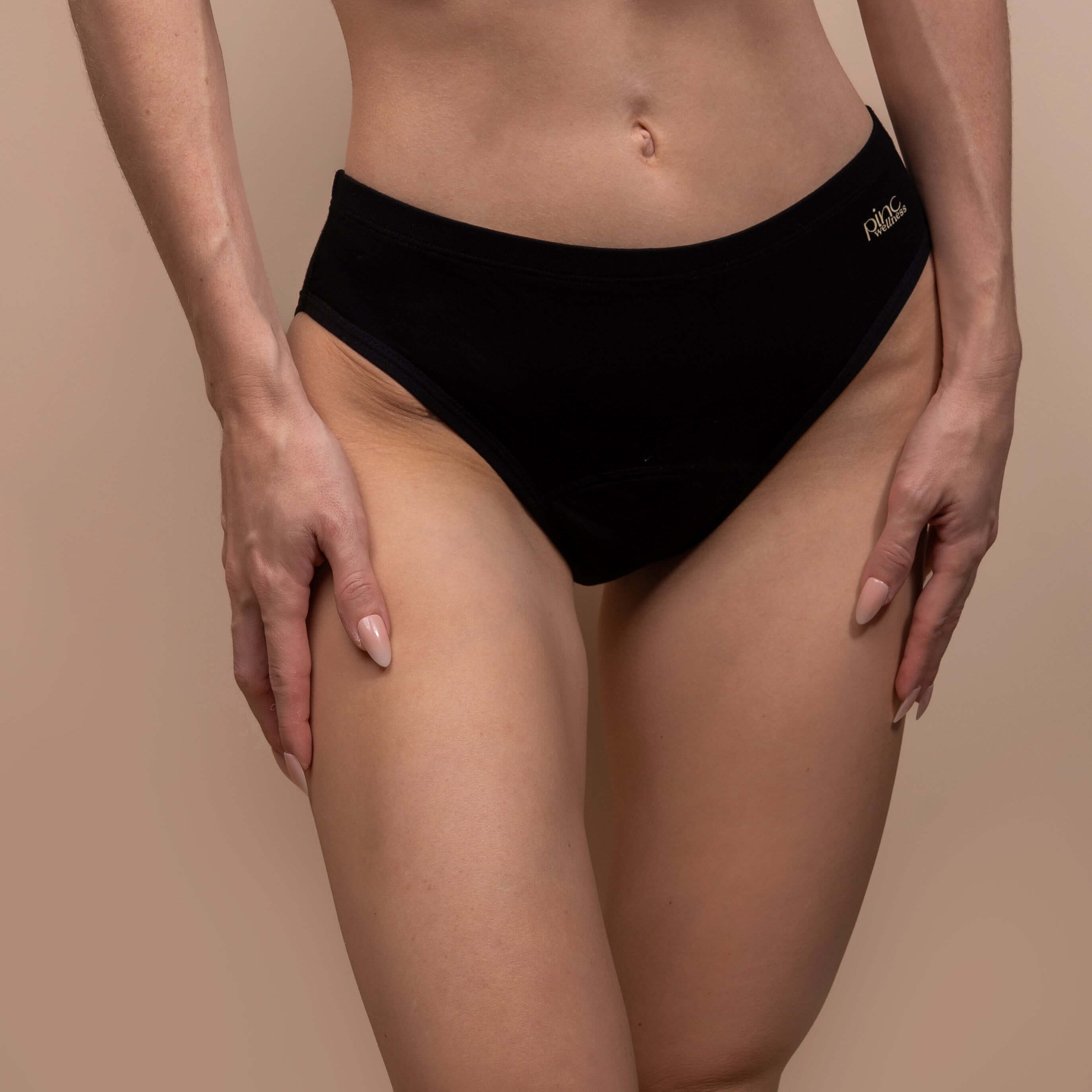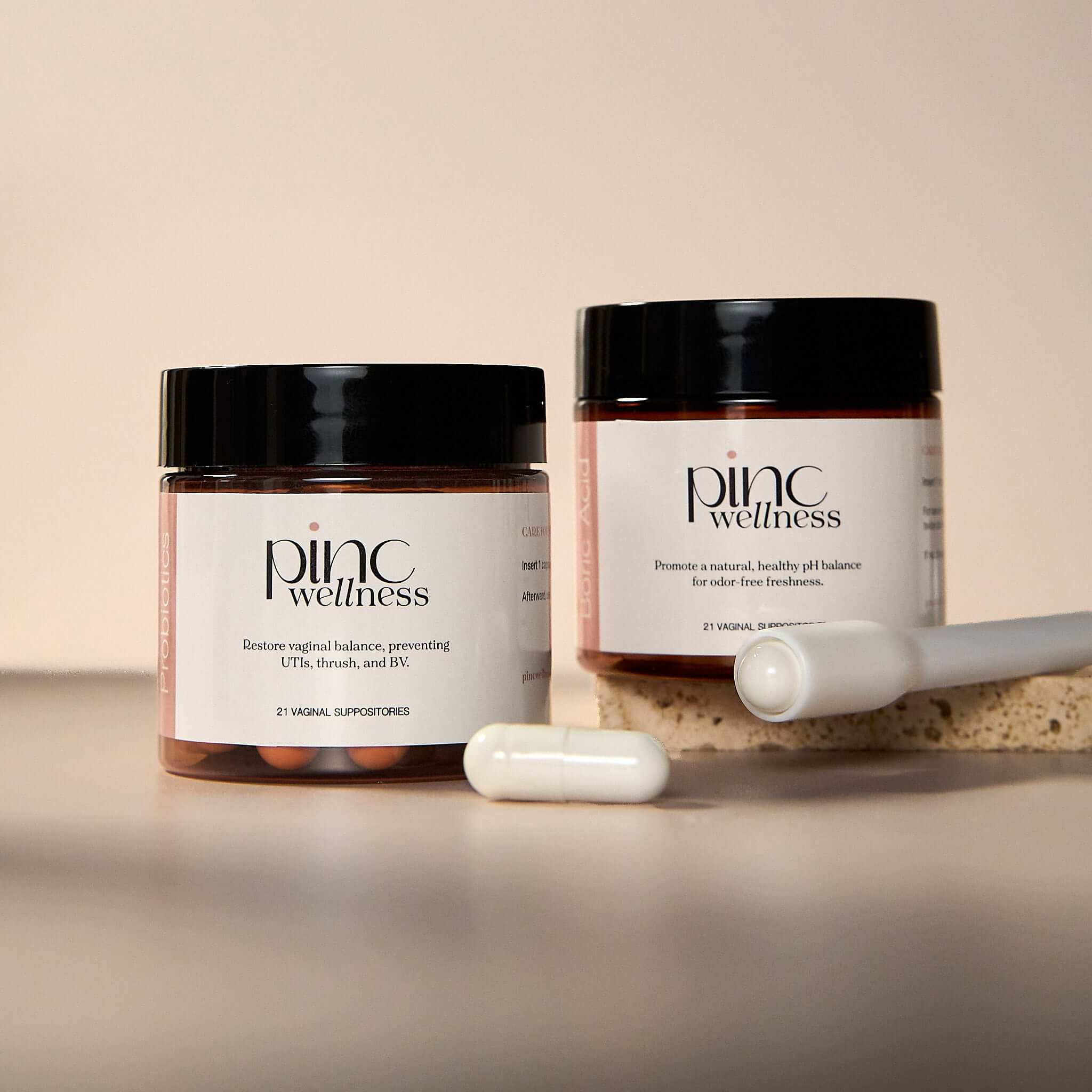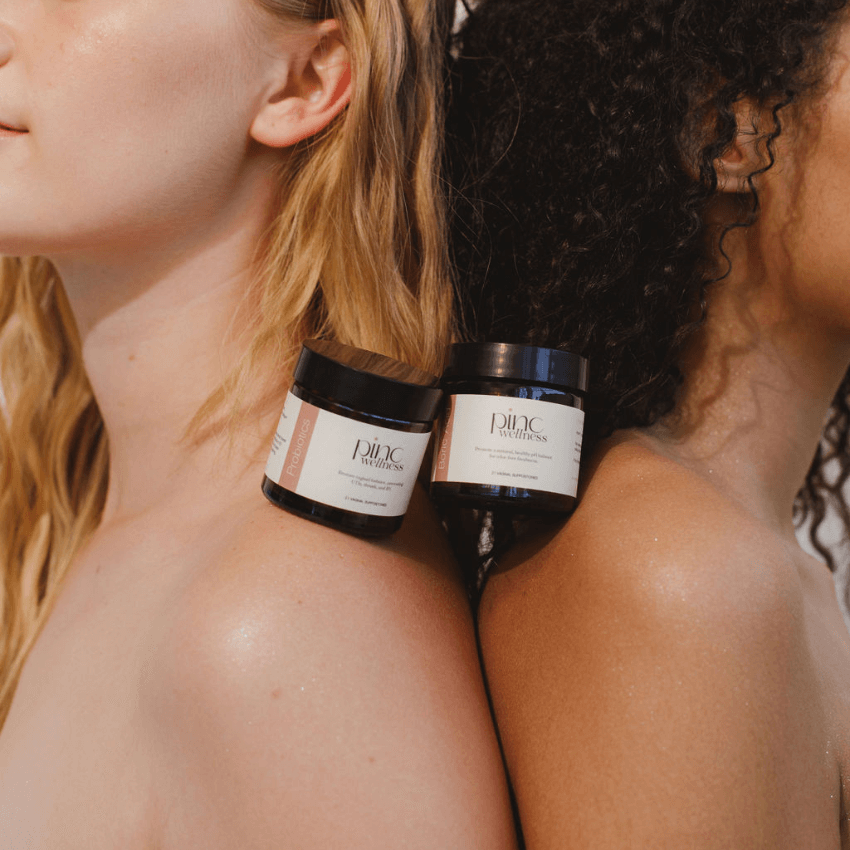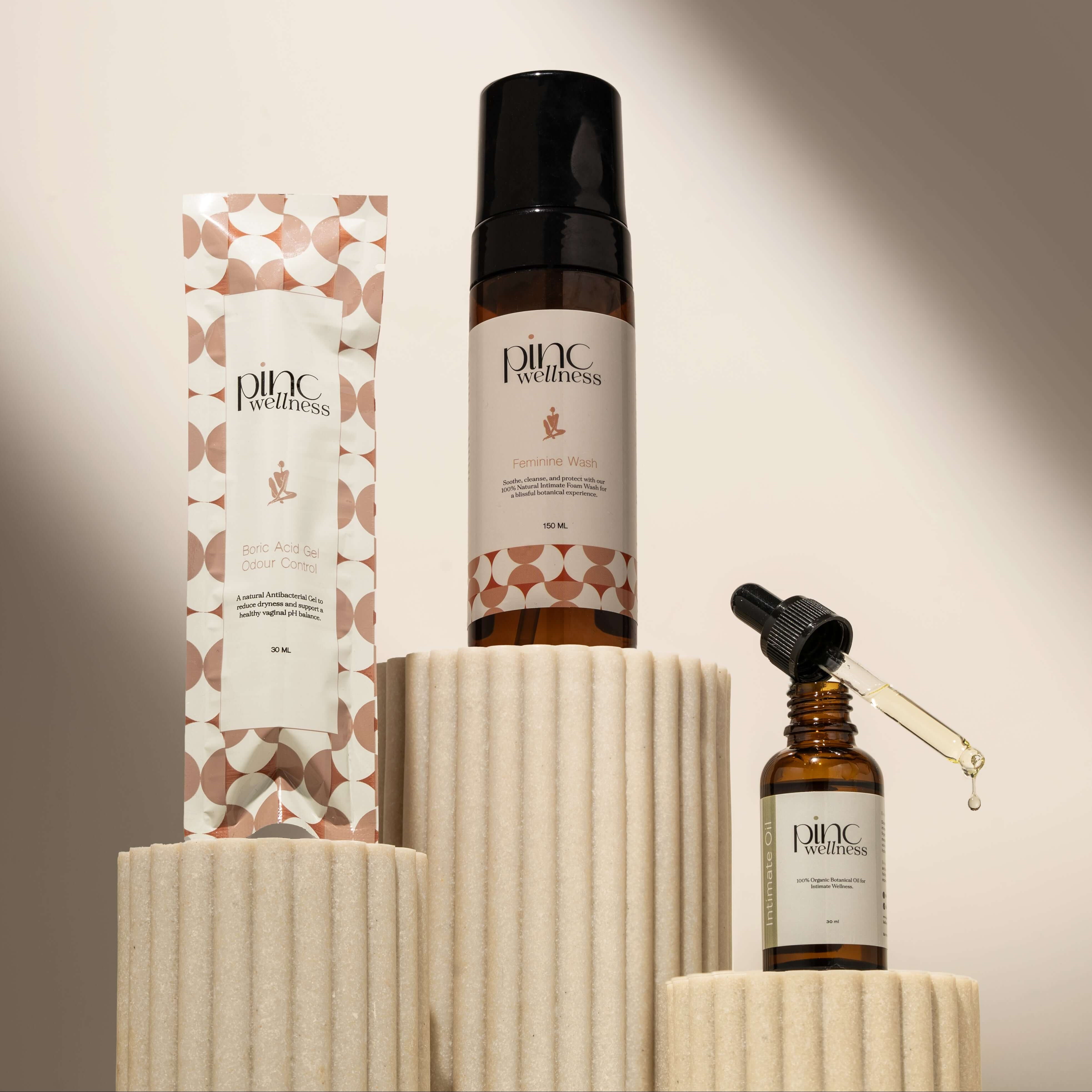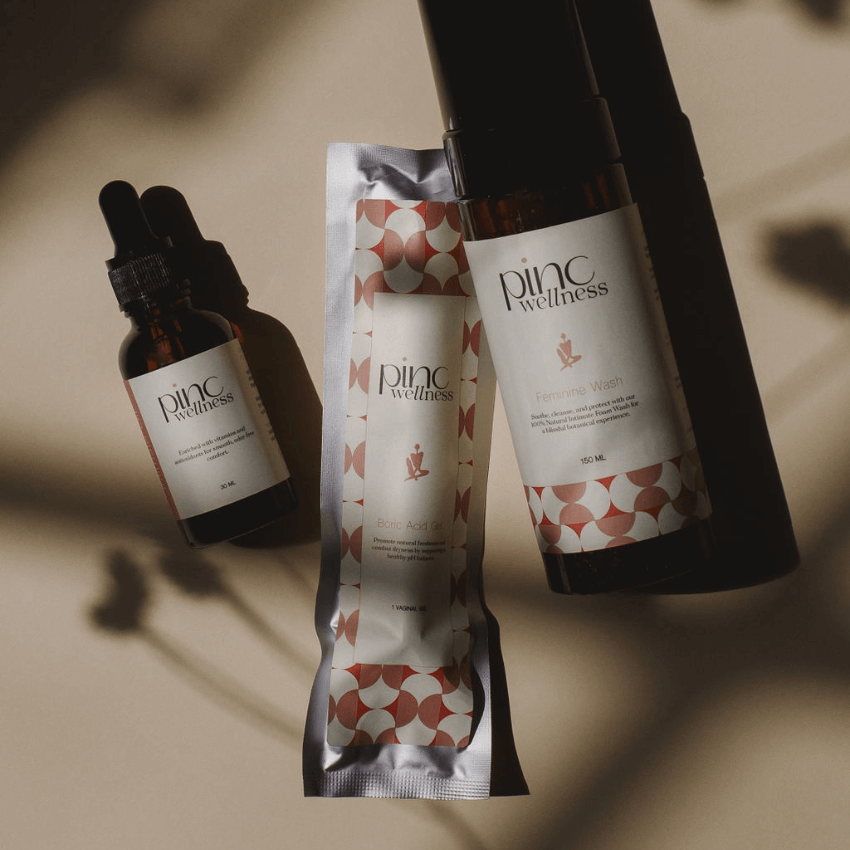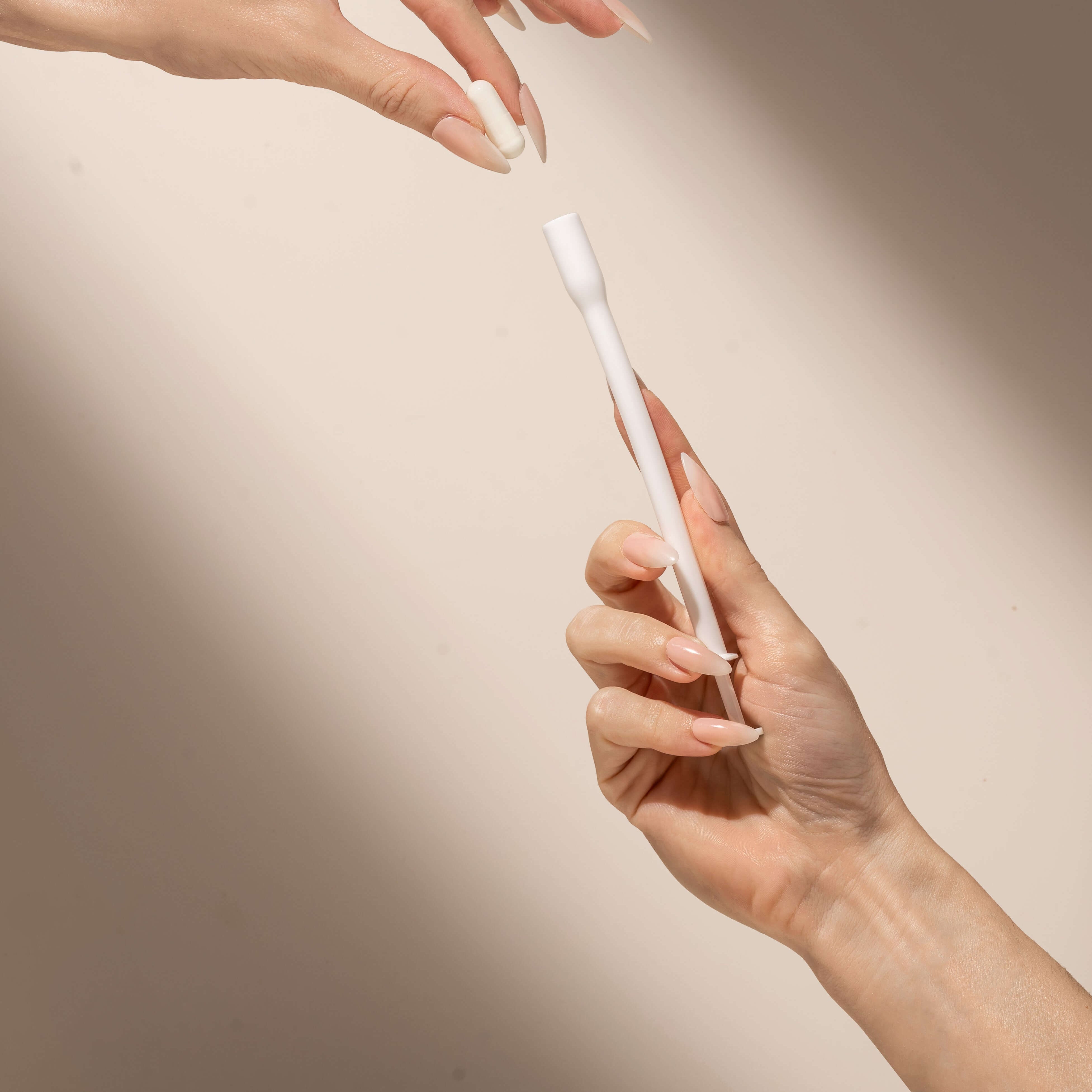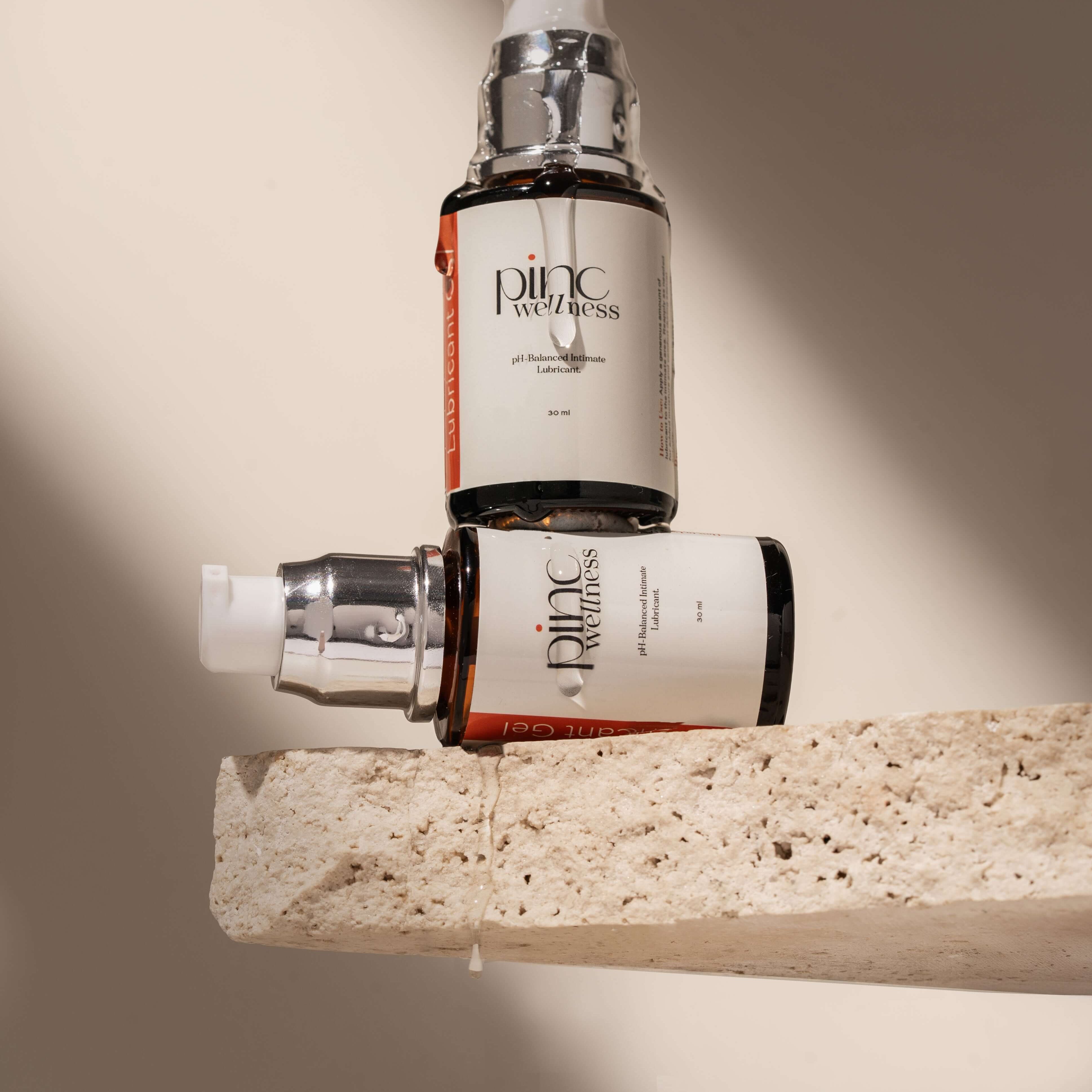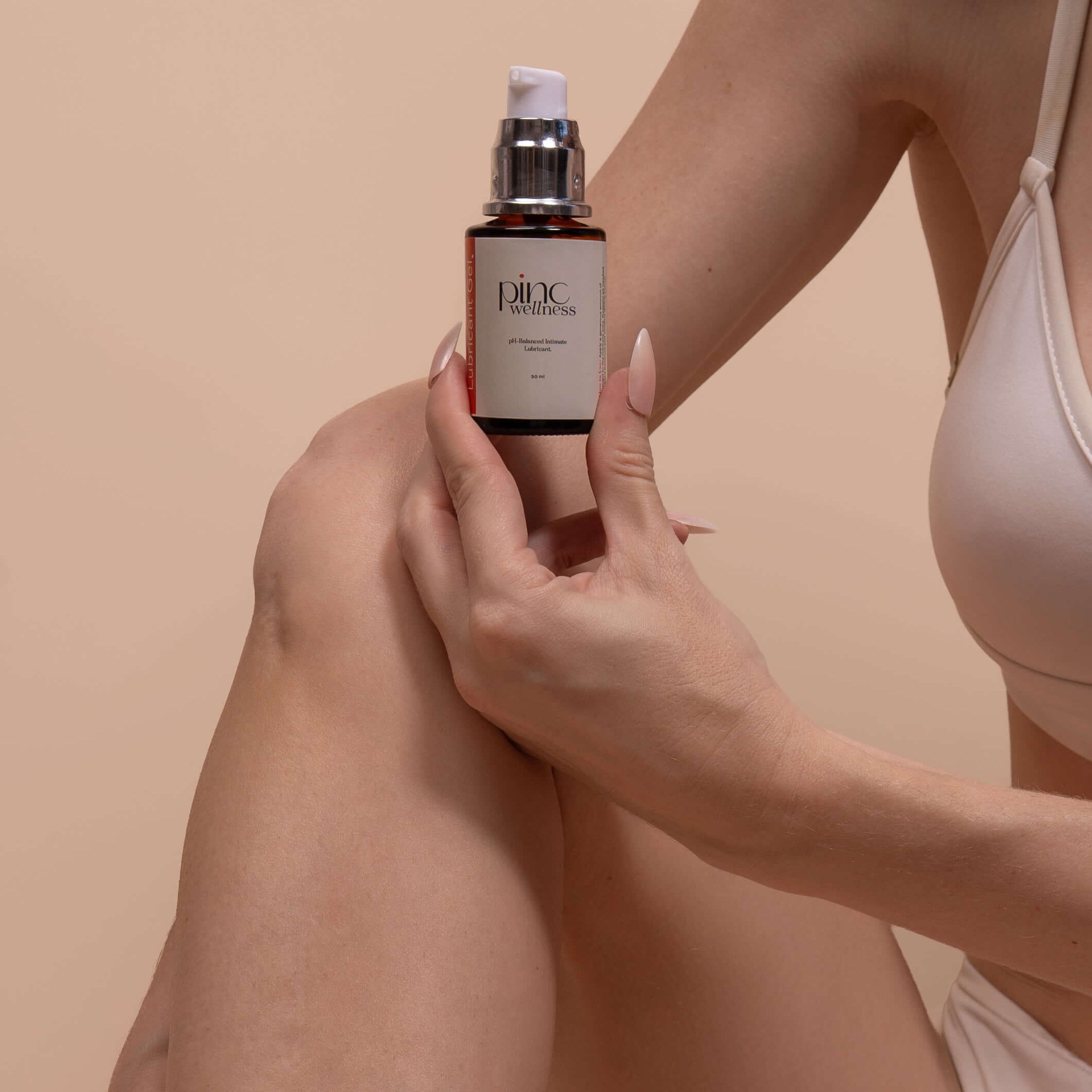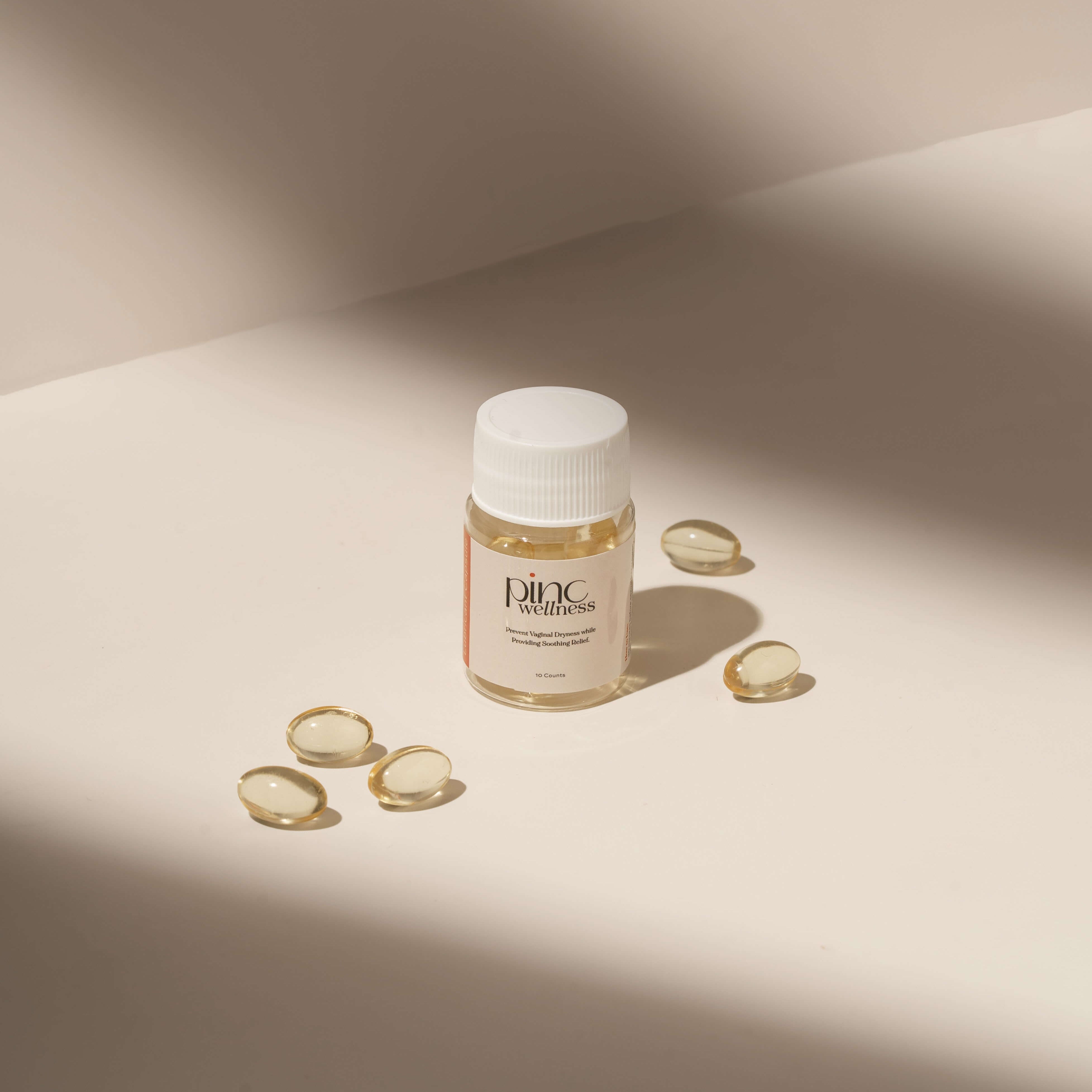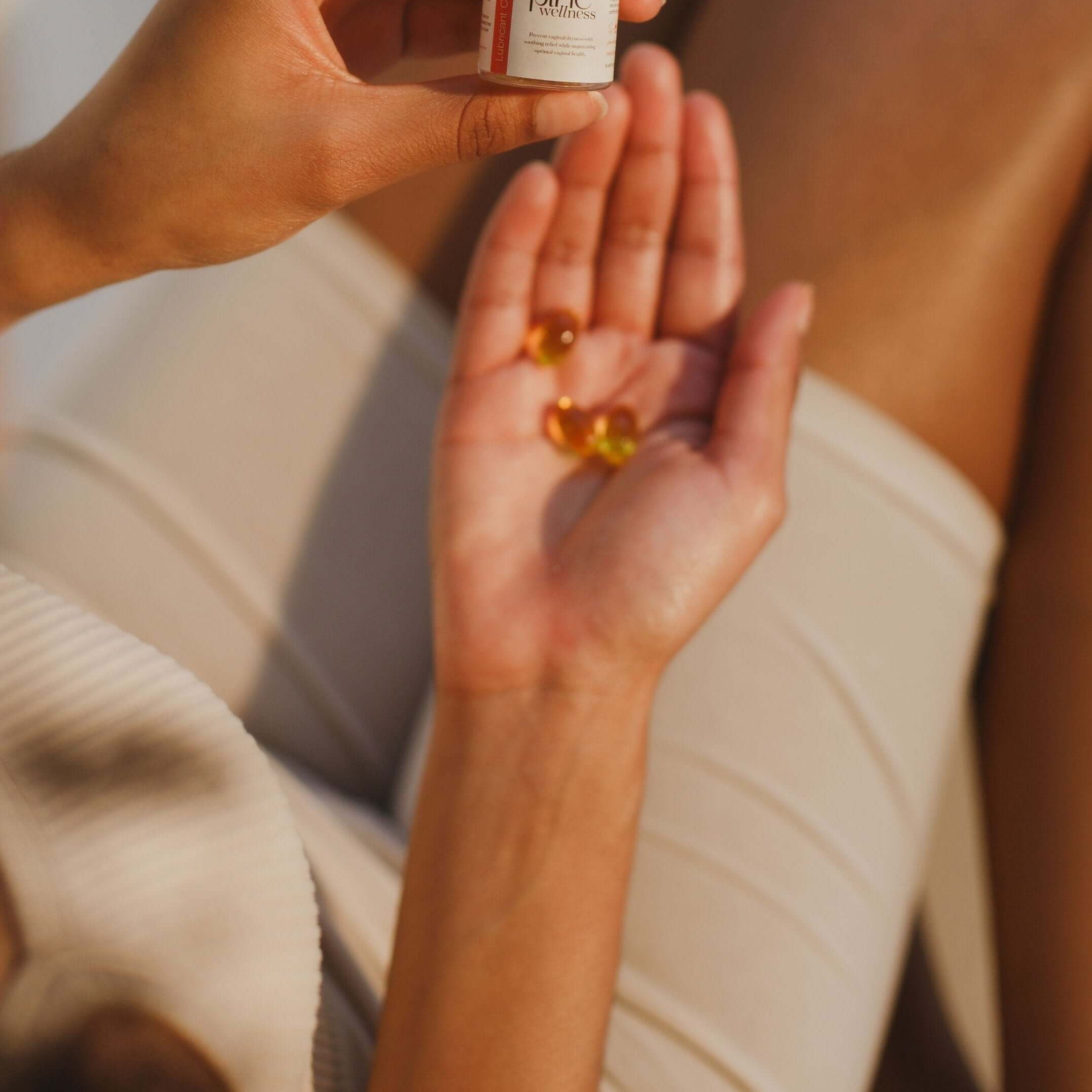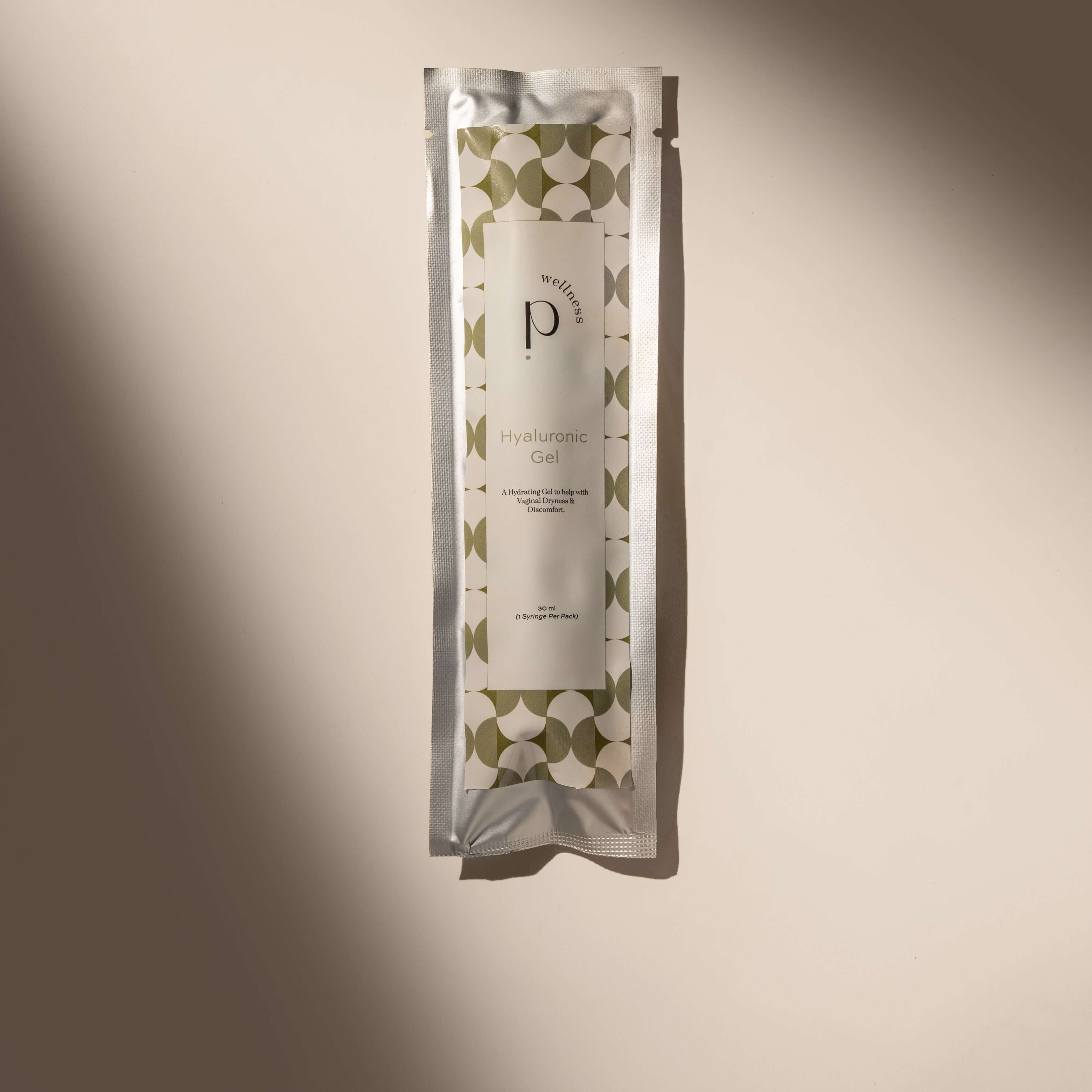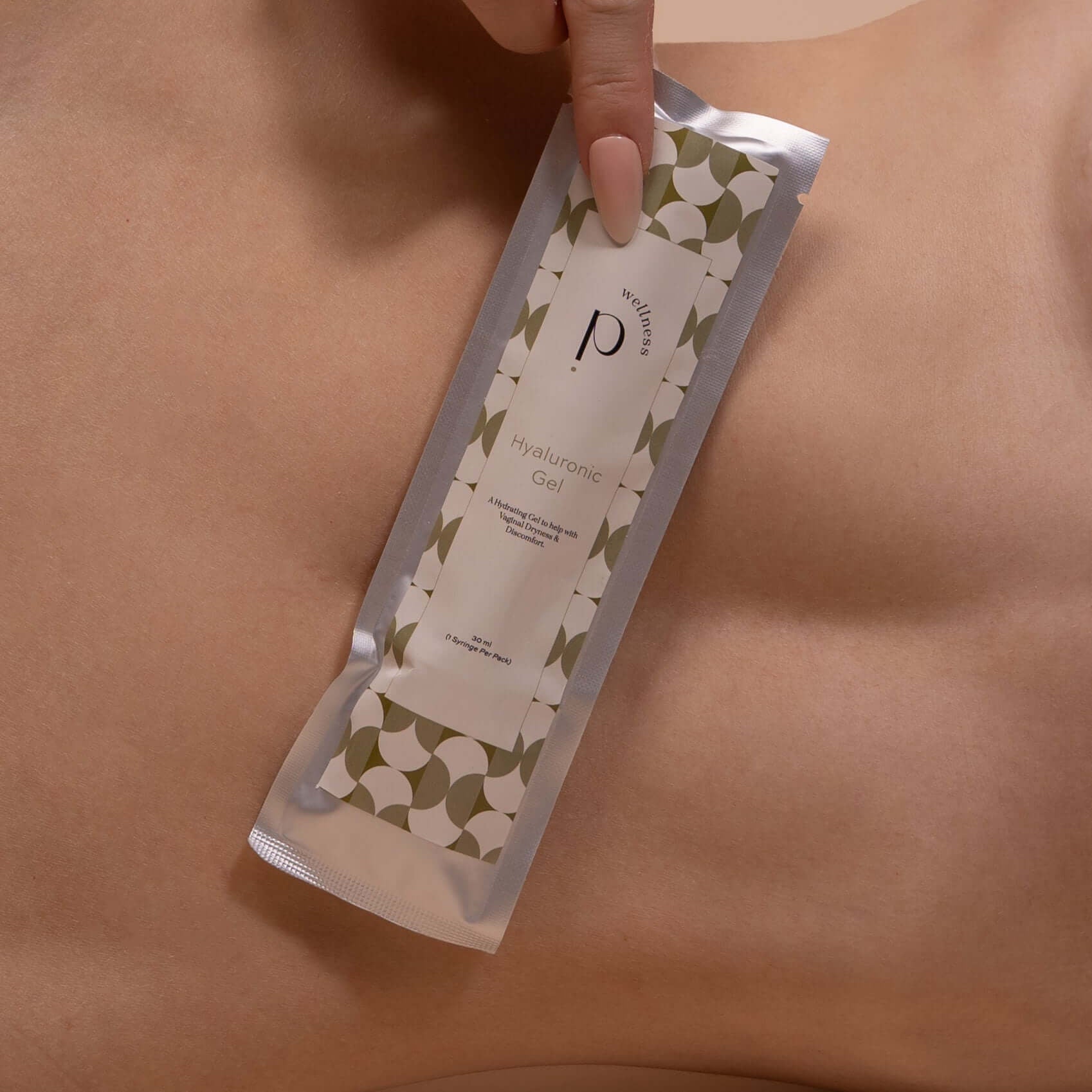Introduction
Recurrent vaginal infections like thrush (vulvovaginal candidiasis) and bacterial vaginosis (BV) cause distressing symptoms and can greatly impact quality of life for many women. Standard antifungal and antibiotic treatments often fail to provide lasting relief, leaving women searching for alternative, effective options. Boric acid (BA) vaginal suppositories have emerged as a well-researched, affordable, and powerful solution to treat chronic and resistant infections by balancing vaginal pH, disrupting biofilms, and targeting resistant fungal strains.
This comprehensive guide explores why boric acid is a preferred treatment, how to use it effectively yet gently, the need for medical oversight, and holistic care strategies including addressing inflammation, hormonal factors, and emotional wellbeing. Pinc Wellness’s mission is to empower women with knowledge and products that respect their bodies’ natural healing processes.
Why Boric Acid?
Boric acid is a mild antiseptic with antifungal and antibacterial properties ideal for vaginal use because:
- It effectively treats yeast infections, including fluconazole-resistant strains like Candida glabrata.
- It disrupts biofilms, the protective layers fungi and bacteria build, making infections stubborn and recurrent.
- It helps restore and maintain a healthy vaginal pH (3.8–4.5), fostering beneficial lactobacilli while inhibiting pathogens.
- It does not enter the bloodstream and has no expiry date, making it a safe, accessible long-term option.
- Often used when other treatments fail, BA can be the only viable solution for chronic infections.
Health conditions such as diabetes, PCOS, and endometriosis increase the risk of vaginal pH disruptions and recurrent infections. Boric acid can keep symptoms under control in these cases.
Preparing and Protecting the Vulva for Treatment
Inflamed, sensitive vulvar tissue is common with thrush and BV and requires careful protection to avoid further damage:
- Use a thick barrier cream overnight, such as Desitin Maximum Strength 40% zinc oxide paste, to shield vulvar skin from irritants like urine, discharge, and friction.
- Prefer reusable, breathable period underwear or panty liners to absorb moisture gently and reduce odor, which are less irritating than disposables.
- Avoid toilet paper; instead, gently pat dry with a clean cloth or use a portable bidet or warm water spray to cleanse without irritation.
Boric Acid Capsule Insertion Tips
Proper insertion enhances effectiveness and reduces discomfort:
- Insert the capsule as high into the vagina as comfortably possible—this reduces irritation and ensures efficient dissolution.
- Use a smooth, reusable applicator if you have inflammation or are concerned about pain; otherwise, clean hands are fine.
- Choose vegan capsules if sensitive; they dissolve faster and are often better tolerated than gelatin capsules.
- For vaginal dryness or atrophy (due to menopause, chemotherapy, or conditions like Lichen Sclerosis), apply a vaginal moisturizer or pH-balanced lubricant such as Pinc Wellness’s Vbalm, Vitamin E suppositories, or coconut oil before insertion.
- Do not force a capsule if you feel resistance—dryness can cause the capsule to get stuck and irritate. Discuss severe dryness with your healthcare provider for possible estrogen therapy.
Don’t Overuse Boric Acid – Use the Least Amount Needed
- Boric acid is not a fixed course, unlike antibiotics. Use for 1–3 nights initially, then assess symptoms.
- Longer courses may be necessary for resistant infections like Candida glabrata, but take breaks (e.g., 3 days on, 2 days off) to prevent irritation and build tolerance.
- Overuse can cause worsening inflammation and discomfort, setting back treatment progress.
- Patience is key; healing is a journey, not a race.
Treat Vulvar Skin Inflammation Separately
While boric acid treats infection, skin inflammation requires its own care:
- Use hydrocortisone cream sparingly if advised by a doctor to reduce swelling and irritation.
- Regularly apply emollients such as Pinc Wellness’s Vbalm, Vitamin E suppositories, aloe vera, or natural oils to restore moisture, elasticity, and skin barrier integrity.
- Soaking in baking soda or sitz baths can soothe vulvar tissues and neutralize pH, but avoid harsh drying or rubbing; pat dry gently.
- For preventing pain from urine, techniques like urinating into a funnel or a bath and rinsing with warm water or using a portable bidet can help protect tender skin.
Pain Management is Essential
Inflammation and infection-related pain can persist and become a chronic problem:
- Consult your healthcare provider about pain relief options such as OTC or prescription medications (Gabapentin, Nortriptyline).
- Consider adjunct therapies like TENS machines, antihistamines (for allergic inflammation), and pelvic floor physical therapy to address nerve-related discomfort.
- Prioritize managing pain as part of your overall vaginal health care.
When Boric Acid Isn’t Working
- If symptoms persist, worsen, or return quickly, seek further testing for co-infections like Ureaplasma, Mycoplasma, or Cytolytic Vaginosis that require different treatments.
- Other inflammatory vaginitis forms (Desquamative Inflammatory Vaginitis, Aerobic Vaginosis) rarely respond to boric acid and need specialist care.
- Do not ignore ongoing symptoms or accept “new normal” discomfort—proper diagnosis is crucial.
Address Hormonal and Gut Health Factors
- Peri- and postmenopausal women may need vaginal estrogen therapy to treat atrophy, reduce dryness, and restore tissue strength.
- Consider working with menopause specialists for personalized hormone replacement therapy.
- Gut health influences vaginal health; addressing constipation and avoiding triggers like sugar, alcohol, and processed foods supports overall wellness.
- Certain diets (low oxalate, low histamine) and supplements (D-Mannose, specific probiotics like Lactobacillus reuteri) may help but should be discussed with a healthcare provider.
Mental and Emotional Wellbeing
- Chronic vaginal infections and pain can significantly impact mental health.
- Seek therapy, join online support groups, and practice self-care rituals to foster emotional resilience.
- Setting boundaries and practicing self-compassion support healing.
Conclusion: A Holistic, Patient-Centered Path to Lasting Relief
Boric acid suppositories offer an effective, safe, and affordable treatment for recurrent thrush and BV when used thoughtfully and paired with comprehensive care focused on tissue healing and emotional support. Pinc Wellness blends science with empathy, providing gentle, pH-balanced products and guidance for women reclaiming their vaginal health.

